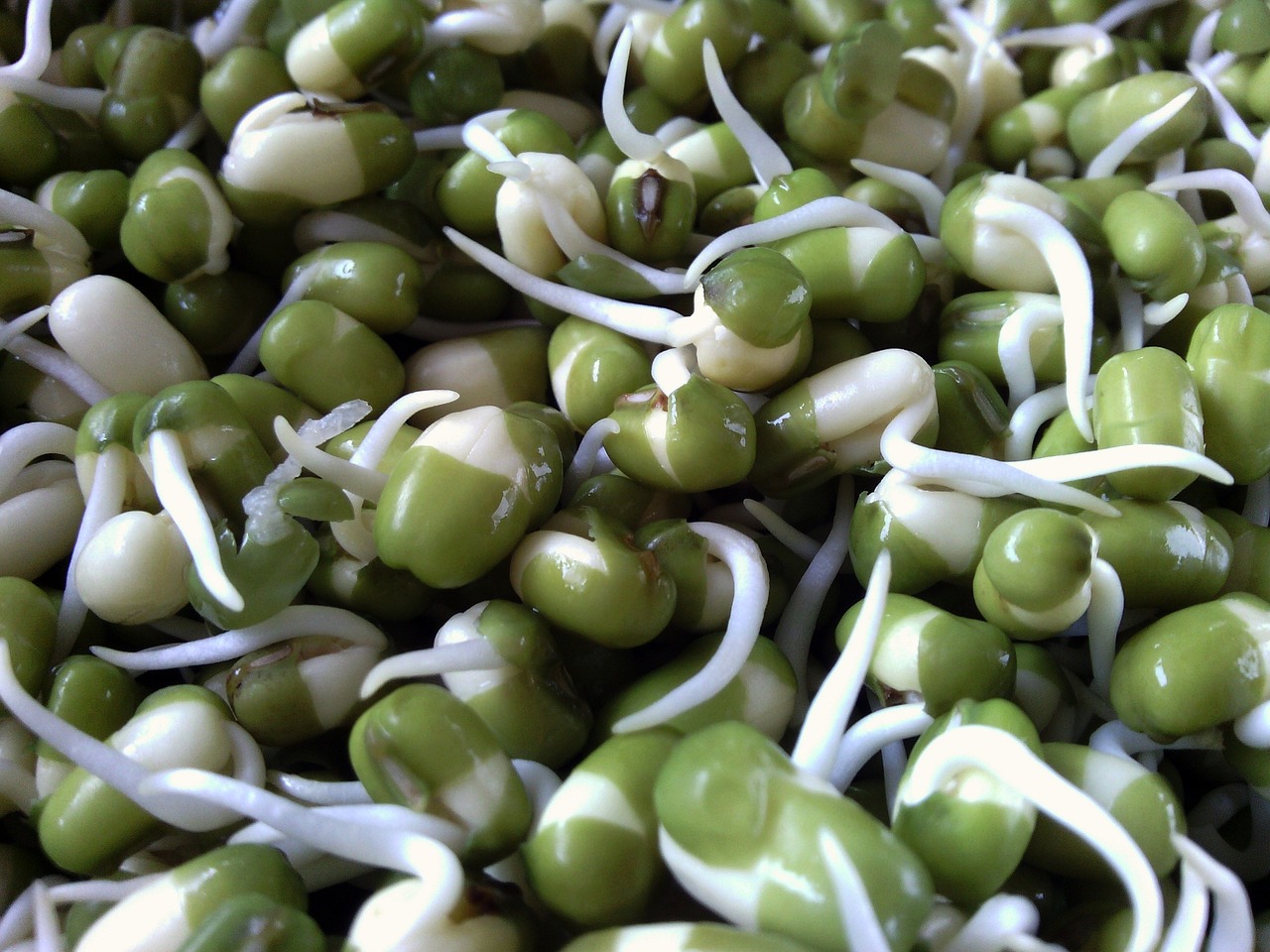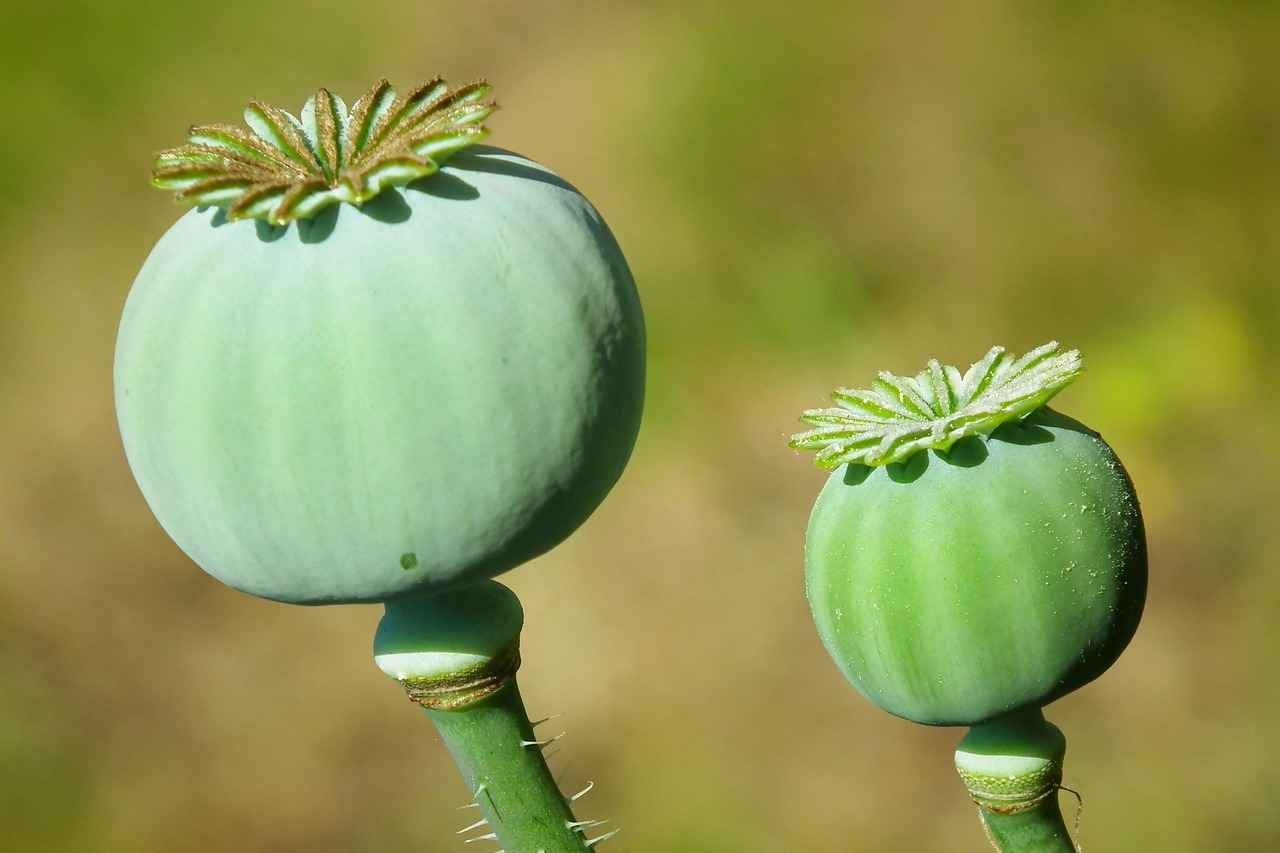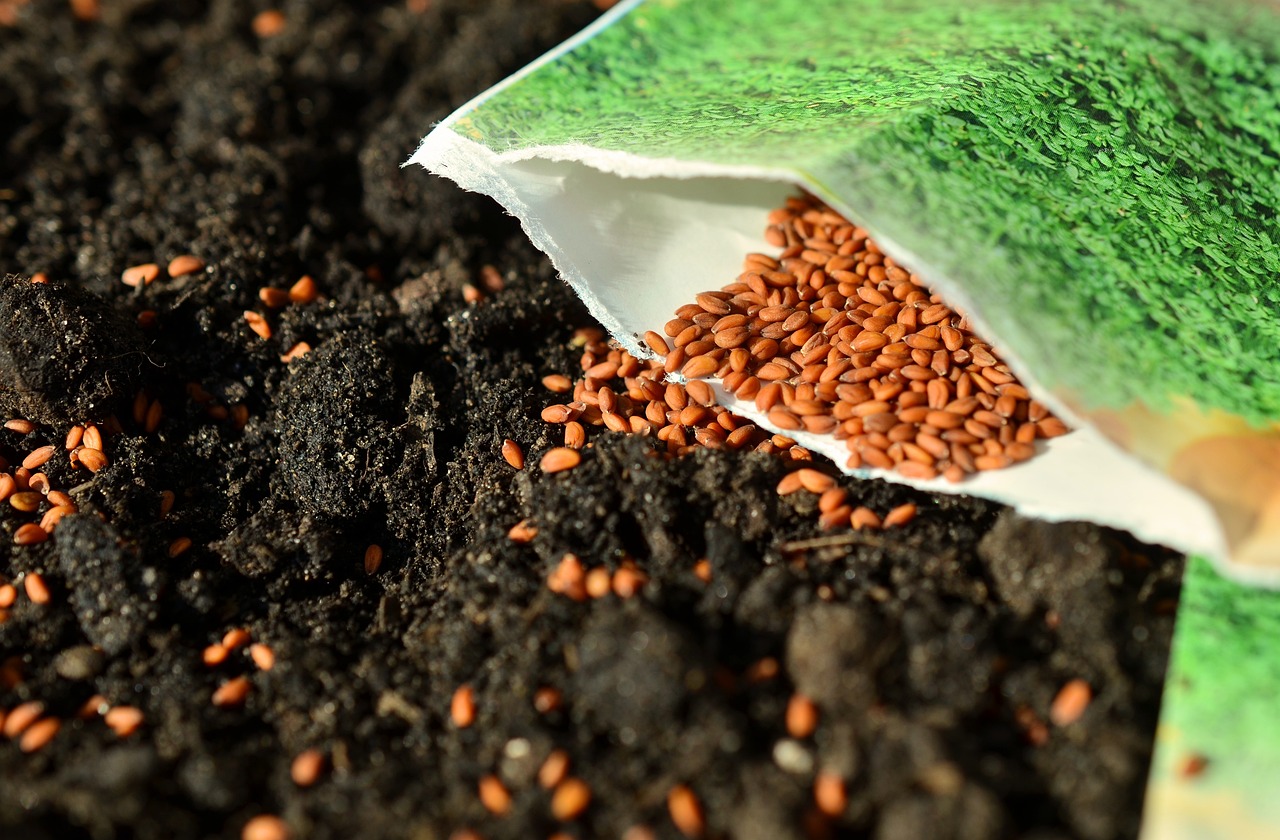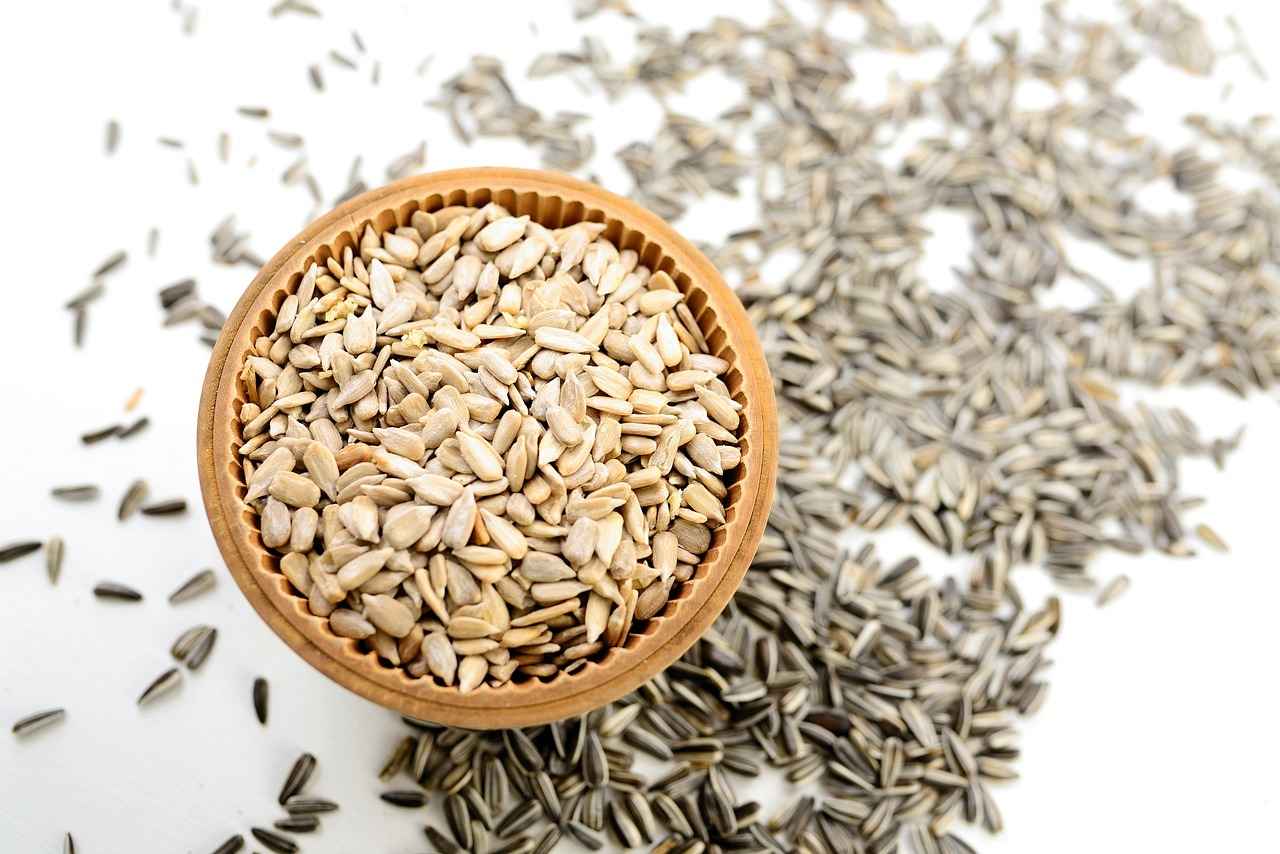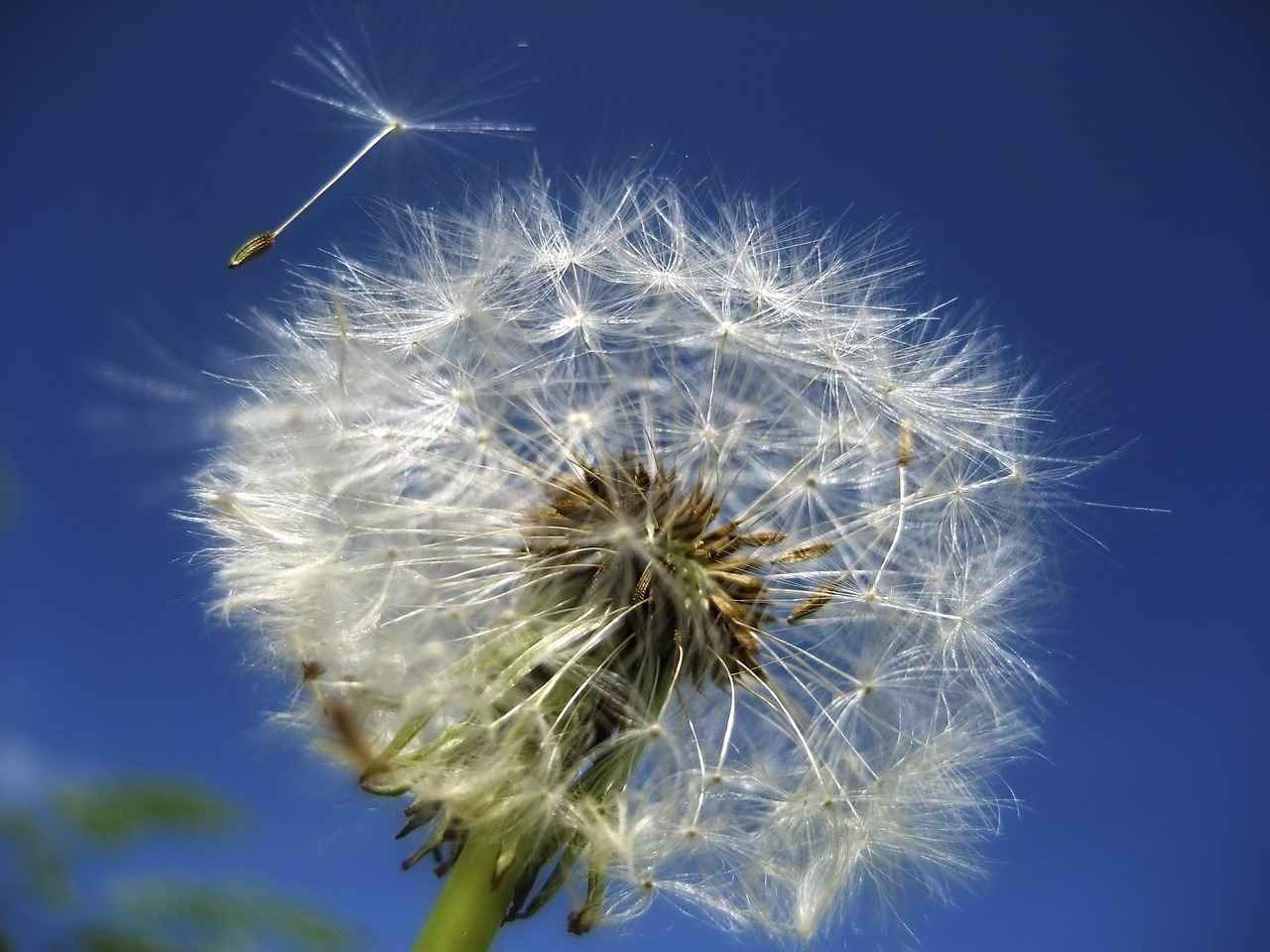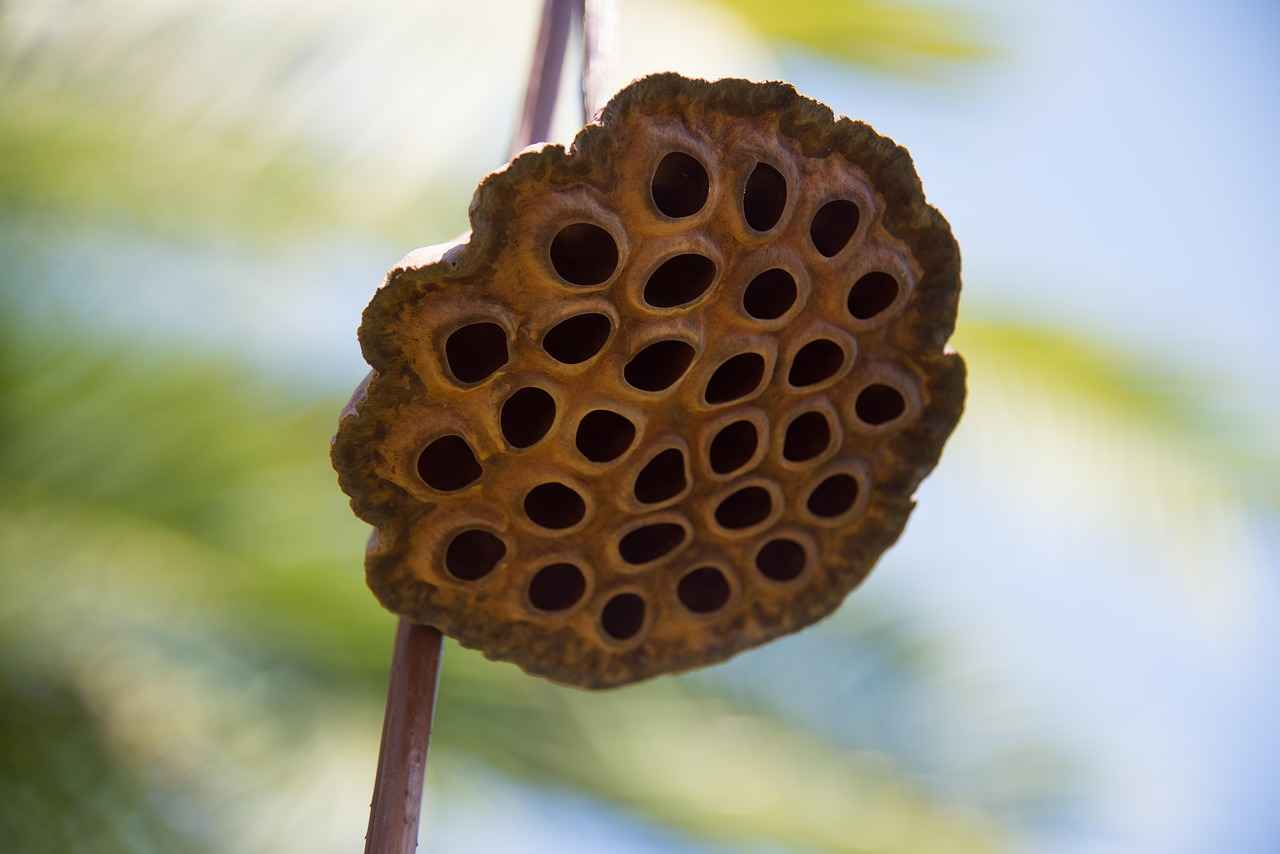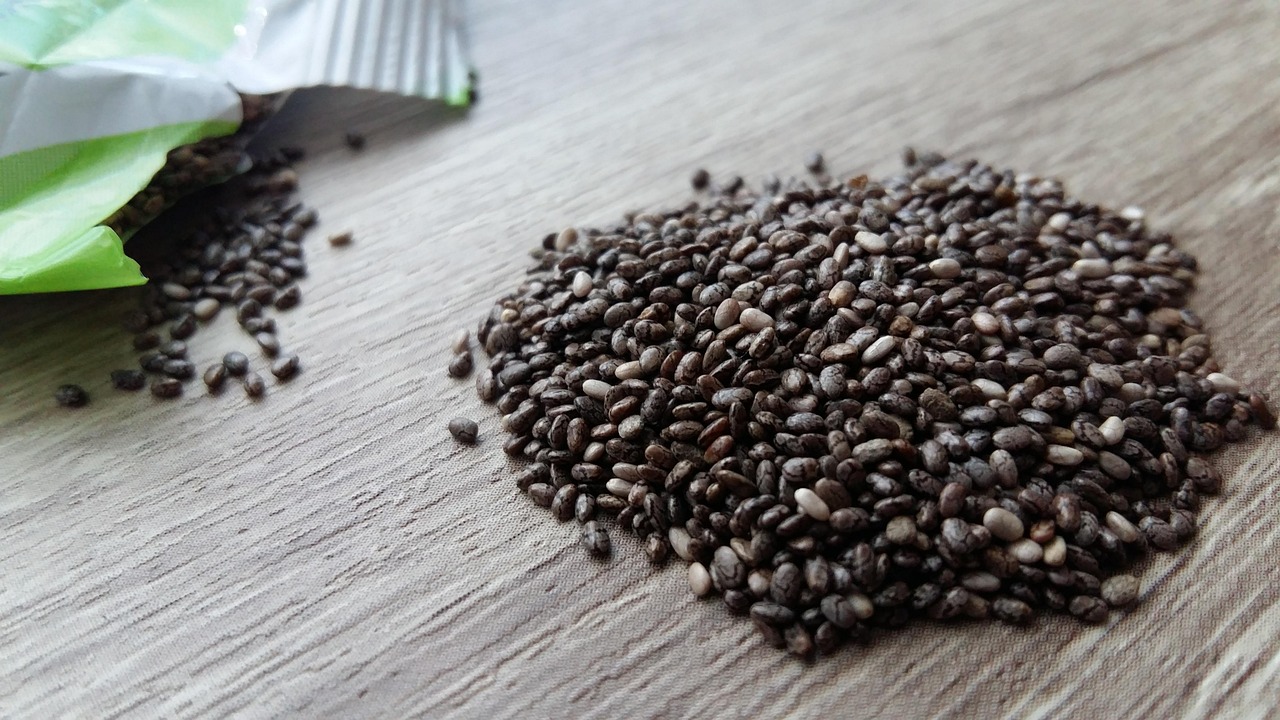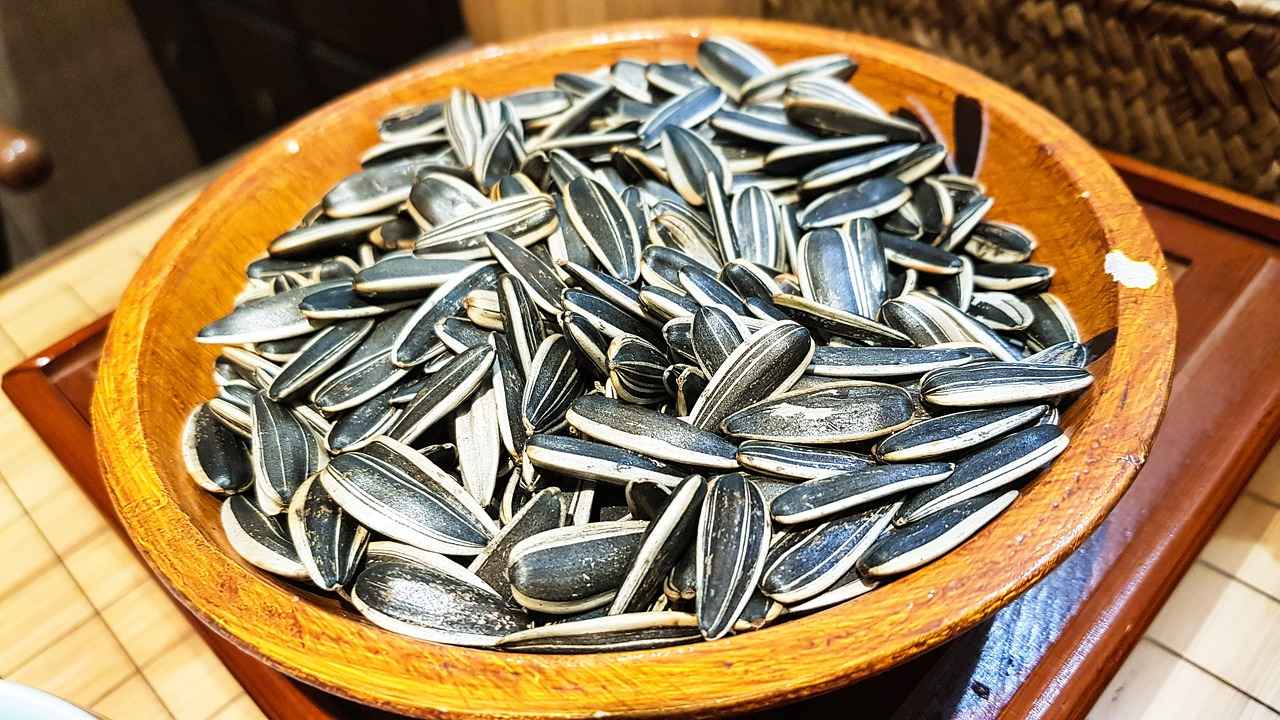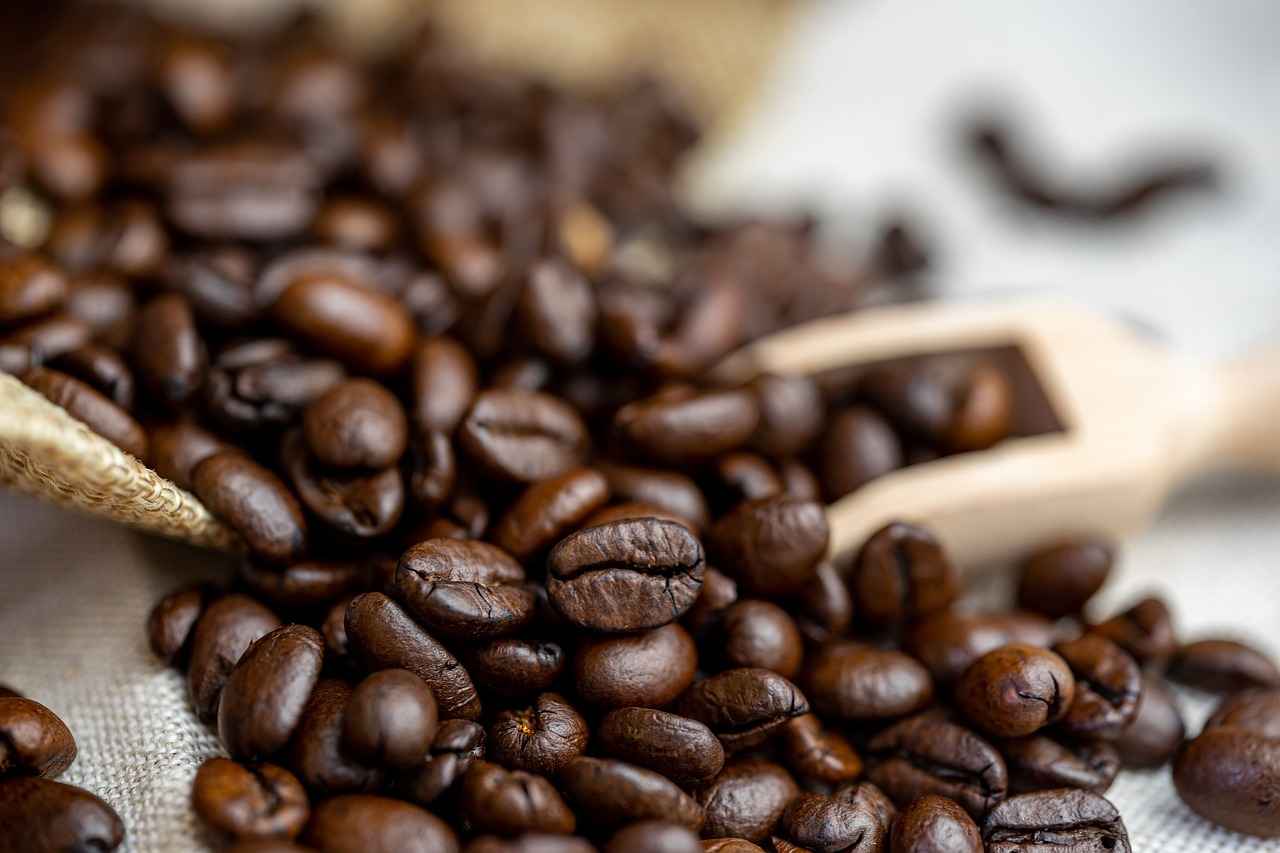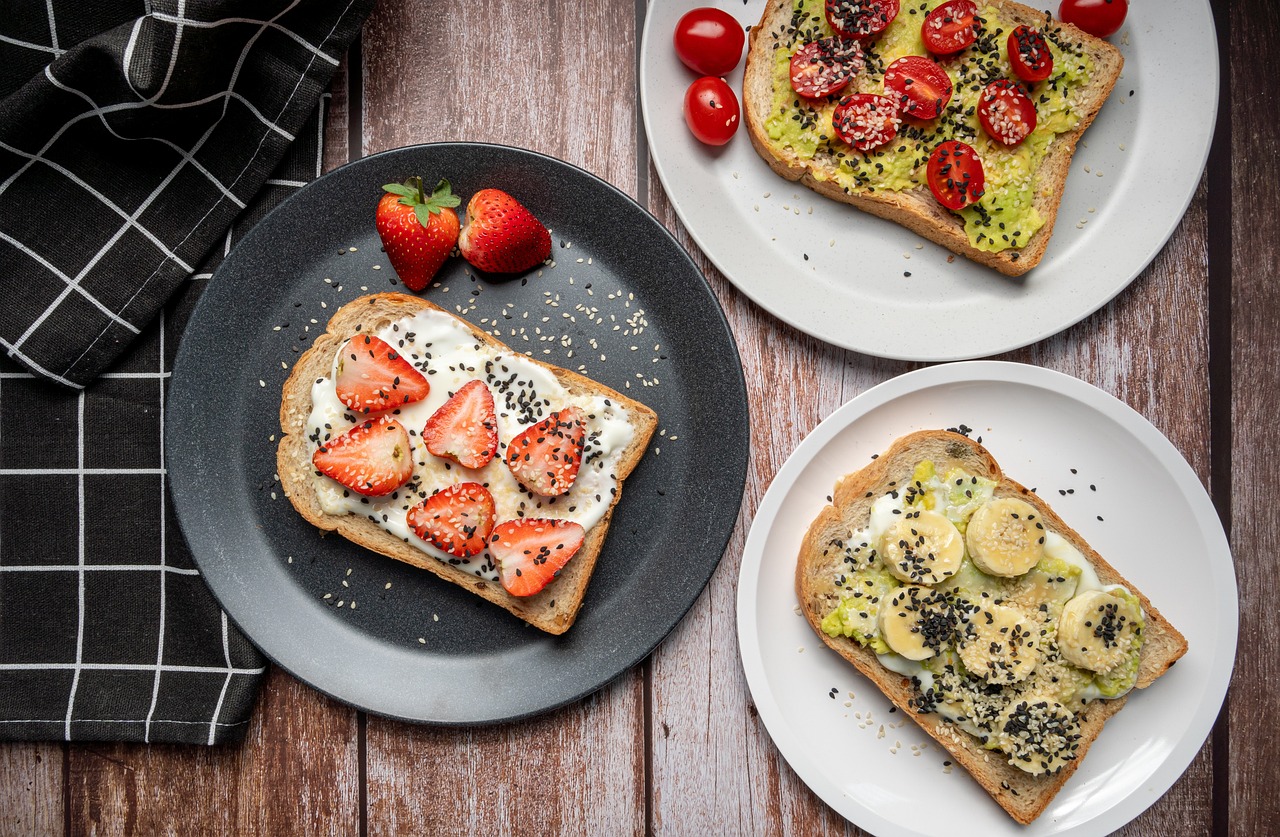This guide provides insights on where to buy chia seeds, including types of retailers, online options, and tips for selecting quality seeds. Discover the best places to shop for this nutritious superfood.
What Are Chia Seeds and Why Buy Them?
Chia seeds are nutrient-dense superfoods packed with fiber, protein, and omega-3 fatty acids. They are known for their numerous health benefits, including improved digestion, enhanced energy levels, and support for heart health. Understanding these benefits can assist you in making informed decisions about purchasing chia seeds.
Where Can You Buy Chia Seeds Locally?
Local grocery stores, health food shops, and specialty markets are excellent places to find chia seeds. Each type of retailer offers unique advantages, from freshness to competitive pricing.
- Grocery Stores: Many supermarkets have chia seeds in their health food or baking sections. Look for popular brands and consider organic options for higher quality.
- Health Food Stores: These stores often have a wider variety of chia seed brands, including organic and bulk options, catering to health-conscious consumers.
- Farmers’ Markets: Local farmers’ markets may feature vendors selling fresh, organic chia seeds. This option supports local agriculture and often ensures quality.
Online Retailers for Chia Seeds
Shopping online offers convenience and access to a broader range of chia seed products. Here are some popular online platforms to consider:
- Amazon: Amazon provides a vast selection of chia seeds from various brands, often with customer reviews that can guide your choice. Look out for Prime options for fast shipping.
- Health Food Websites: Websites dedicated to health foods, such as Thrive Market or iHerb, offer organic chia seeds, often at competitive prices with bulk purchasing options.
What to Look for When Buying Chia Seeds?
Choosing quality chia seeds is crucial for maximizing health benefits. Here are key factors to consider:
- Organic Certification: Opt for organic chia seeds to avoid pesticides and ensure higher nutrient content. Look for certifications on packaging to confirm organic status.
- Packaging and Freshness: Freshness is vital for maintaining the nutritional value of chia seeds. Check packaging dates and choose resealable bags for longer shelf life.
How to Store Chia Seeds Properly?
Proper storage of chia seeds is essential to maintain their freshness and nutritional value. Follow these tips for optimal storage:
- Cool and Dry Place: Store chia seeds in a cool, dry place away from direct sunlight to prevent spoilage and maintain their quality over time.
- Airtight Containers: Using airtight containers can help protect chia seeds from moisture and pests, ensuring they remain fresh for longer periods.
How to Incorporate Chia Seeds into Your Diet?
Chia seeds can be easily added to various dishes. Here are some creative ways to incorporate them into your meals:
- Chia Seed Pudding: Chia seed pudding is a popular and nutritious breakfast option. Simply mix chia seeds with milk or a milk alternative, let them soak, and enjoy.
- Smoothies and Juices: Add chia seeds to smoothies or juices for an extra nutrient boost. They blend well and enhance the texture of your favorite beverages.
What Are the Health Benefits of Chia Seeds?
Chia seeds offer numerous health benefits, making them a worthwhile addition to your diet. Here’s a look at some of their key advantages:
- Rich in Nutrients: Chia seeds are high in fiber, protein, and essential fatty acids, contributing to overall health and well-being.
- Weight Management: Due to their high fiber content, chia seeds can promote satiety, aiding in weight management and reducing overall calorie intake.
Are There Any Risks or Side Effects?
While chia seeds are generally safe, some individuals may experience side effects. It’s important to be aware of potential risks associated with their consumption:
- Digestive Issues: Consuming large quantities of chia seeds without adequate hydration may lead to digestive discomfort. Always drink plenty of water when consuming them.
- Allergic Reactions: Though rare, some people may have allergies to chia seeds. Monitor for any adverse reactions if you’re trying them for the first time.

What Are Chia Seeds and Why Buy Them?
Chia seeds have surged in popularity over the past few years, and for good reason. These tiny seeds are not just a passing trend; they are nutrient-dense superfoods that offer a wide array of health benefits. Packed with essential nutrients, chia seeds are a fantastic addition to any diet. In this section, we will delve into what chia seeds are, their numerous health benefits, and why you should consider incorporating them into your daily routine.
Chia seeds come from the Salvia hispanica plant, which is native to Mexico and Guatemala. These tiny, oval-shaped seeds are known for their remarkable ability to absorb water, expanding to up to 12 times their original size. This unique property not only enhances their texture but also contributes to their health benefits. Chia seeds are rich in:
- Fiber: A single ounce of chia seeds contains about 11 grams of fiber, which is essential for digestive health.
- Protein: They provide a good source of plant-based protein, making them a great option for vegetarians and vegans.
- Omega-3 Fatty Acids: Chia seeds are one of the richest plant sources of omega-3s, which are vital for heart health.
- Antioxidants: These seeds are loaded with antioxidants that help combat oxidative stress in the body.
Understanding the health benefits of chia seeds can help you make informed decisions about purchasing them. Here are some compelling reasons to consider adding chia seeds to your pantry:
- Improved Digestive Health: The high fiber content in chia seeds promotes regular bowel movements and aids in digestion, making them an excellent choice for those with digestive issues.
- Weight Management: Chia seeds can help you feel full longer due to their ability to absorb water and expand in your stomach, potentially aiding in weight loss.
- Heart Health: The omega-3 fatty acids found in chia seeds help reduce inflammation and lower cholesterol levels, contributing to overall heart health.
- Bone Health: Chia seeds are a good source of calcium, magnesium, and phosphorus, all of which are essential for maintaining strong bones.
When shopping for chia seeds, it’s crucial to select high-quality products. Here are some tips to ensure you’re getting the best:
- Look for Organic Certification: Organic chia seeds are grown without harmful pesticides, ensuring a cleaner product.
- Check for Freshness: Always check the packaging date. Fresh seeds have a longer shelf life and retain their nutritional value.
- Consider the Source: Purchase from reputable brands or local suppliers to ensure quality and sustainability.
In conclusion, chia seeds are a versatile and healthful addition to any diet. Their rich nutrient profile and numerous health benefits make them a worthy investment for anyone looking to enhance their overall well-being. Whether you add them to smoothies, salads, or baked goods, chia seeds can easily be incorporated into your daily meals, providing a nutritious boost that supports a healthy lifestyle.
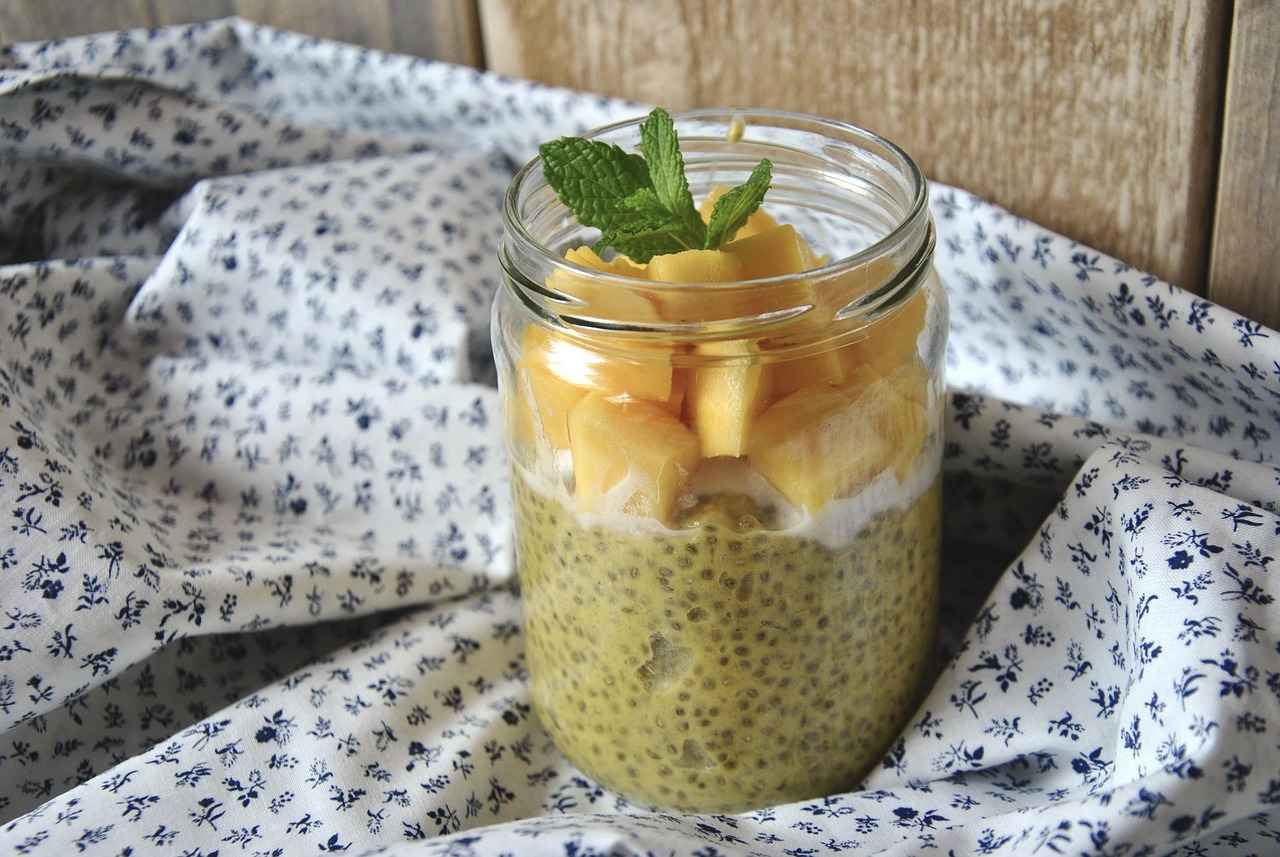
Where Can You Buy Chia Seeds Locally?
When it comes to purchasing chia seeds, local options can provide a variety of benefits. Whether you’re looking for quality, price, or unique selections, local grocery stores, health food shops, and specialty markets are excellent places to explore. Here’s a detailed look at these options and what they have to offer.
Many supermarkets now include chia seeds in their health food or baking sections. This makes them easily accessible for everyday shoppers. Here are some advantages:
- Convenience: Grocery stores are often located near residential areas, making them a quick stop during your routine shopping.
- Competitive Pricing: Larger chains may offer lower prices due to bulk purchasing, making it budget-friendly.
- Brand Variety: You can find popular brands and sometimes even local options that may not be available in other stores.
Health food stores typically provide a broader selection of chia seed products. Here’s why they might be your best bet:
- Organic Options: Many health food stores focus on organic and non-GMO products, ensuring you get high-quality seeds.
- Bulk Buying: These stores often offer chia seeds in bulk, allowing you to purchase as much as you need without excess packaging.
- Expert Guidance: Staff at health food stores are usually knowledgeable and can provide insights on the best products for your dietary needs.
Visiting farmers’ markets can be a delightful experience for those seeking fresh, organic chia seeds. Here are some benefits:
- Support Local Farmers: Purchasing from local vendors helps support your community and promotes sustainable agriculture.
- Quality Assurance: Many vendors prioritize quality and freshness, often providing seeds that were harvested recently.
- Unique Varieties: You may discover unique or heirloom varieties of chia seeds not found in conventional stores.
Specialty markets, such as ethnic grocery stores or health-focused shops, can offer unique options for chia seeds:
- International Brands: You might find chia seeds from different countries, each with distinct qualities and flavors.
- Specialty Products: Look for chia seed blends or products infused with flavors, perfect for those looking to experiment.
- Community Connection: Shopping at specialty markets can provide a sense of community and connection to diverse cultures.
Regardless of where you shop, here are some tips to ensure you choose the best chia seeds:
- Check for Organic Certification: Look for seals that indicate the seeds are organic and free from pesticides.
- Inspect Packaging: Ensure the packaging is intact and check for a freshness date to ensure quality.
- Research Brands: Familiarize yourself with reputable brands known for their quality and ethical sourcing.
Grocery Stores
When it comes to buying chia seeds, grocery stores are often the first place many consumers turn. These establishments provide a convenient option for shoppers looking to incorporate this nutritious superfood into their diets. In this section, we will explore the variety of chia seed options available at grocery stores, how to choose the best quality, and what to look for when browsing through the aisles.
Many supermarkets carry chia seeds in their health food or baking sections. This accessibility makes it easy for consumers to find them while shopping for other essentials. Here are some key points to consider when purchasing chia seeds at grocery stores:
- Variety of Brands: Most grocery stores stock a selection of popular brands, which can vary from store to store. It’s beneficial to compare different brands to find one that suits your preferences in terms of taste and texture.
- Organic Options: Look for organic chia seeds for higher quality. Organic seeds are grown without synthetic pesticides or fertilizers, ensuring that you are consuming a cleaner product. Many grocery stores have dedicated sections for organic products, making them easier to locate.
- Packaging: Pay attention to the packaging of the chia seeds. Resealable bags are ideal as they help maintain freshness. Check for packaging dates to ensure that you are buying the freshest product available.
- Price Comparisons: Prices for chia seeds can vary significantly between brands and stores. Don’t hesitate to compare prices to ensure you are getting the best deal. Some stores may offer sales or discounts on health food items.
In addition to the standard grocery chains, many local supermarkets are beginning to offer a wider range of health food products, including chia seeds. This trend reflects the growing consumer demand for healthy and nutritious food options.
Another advantage of purchasing chia seeds from grocery stores is the ability to read nutrition labels and ingredient lists firsthand. This transparency allows you to make informed choices based on your dietary needs.
While grocery stores are a convenient option, it’s also worth exploring other local sources such as health food stores and farmers’ markets. These places often carry a wider variety of chia seed brands, including bulk options that can be more economical for regular users.
In conclusion, grocery stores provide a practical and accessible way to purchase chia seeds. By being mindful of the factors mentioned above, you can ensure that you are selecting high-quality seeds that will contribute to your overall health and well-being.
Health Food Stores
When it comes to purchasing chia seeds, health food stores stand out as a premier destination. These specialized retailers offer a comprehensive selection of chia seed brands, catering specifically to the needs of health-conscious consumers. With an emphasis on quality and variety, health food stores provide options that are often not available in regular grocery stores.
Health food stores often prioritize organic and natural products, ensuring that you have access to high-quality chia seeds. Here are some compelling reasons to consider these stores:
- Wide Variety: Many health food stores stock multiple brands of chia seeds, including lesser-known organic options that may not be found in larger supermarkets. This variety allows consumers to choose based on personal preferences, dietary needs, or specific health goals.
- Bulk Purchasing: Health food stores frequently offer chia seeds in bulk, allowing you to buy the exact amount you need without excess packaging. This not only saves money but also reduces waste, making it an environmentally friendly option.
- Expert Staff: The staff at health food stores are often knowledgeable about the products they sell. They can provide valuable insights and recommendations on the best chia seed options based on your health objectives.
When visiting a health food store, it’s essential to know what to look for to ensure you’re getting the best quality chia seeds:
- Organic Certification: Always check for organic certification on the packaging. This guarantees that the seeds are free from harmful pesticides and chemicals, offering a healthier choice.
- Freshness: Look for packaging dates to ensure the chia seeds are fresh. Fresh seeds not only taste better but also retain their nutritional value.
- Variety of Forms: Chia seeds come in different forms, including whole, ground, and even flavored. Consider trying various forms to see which one fits your culinary needs best.
Once you’ve purchased quality chia seeds from a health food store, the next step is to incorporate them into your meals. Here are some creative ideas:
- Chia Seed Pudding: Mix chia seeds with your choice of milk or dairy alternative, add sweeteners or fruits, and let it sit overnight for a nutritious breakfast.
- Smoothies: Blend chia seeds into your smoothies for an added nutrient boost. They blend well and enhance the texture of your drinks.
- Baking: Add chia seeds to your baking recipes for a nutritious twist. They can be included in muffins, bread, or energy bars.
To find a health food store near you, consider using online directories or apps that specialize in health and wellness products. Many cities have local chains or independent stores that focus on organic and health-conscious foods. Additionally, some larger grocery stores have dedicated health food sections that may carry a selection of chia seeds.
In conclusion, health food stores are an excellent resource for purchasing chia seeds, offering a wide variety of organic and bulk options tailored to health-conscious consumers. By knowing what to look for and how to incorporate these seeds into your diet, you can enjoy the numerous health benefits they provide.
Farmers’ Markets
When it comes to sourcing chia seeds, one of the most delightful options available is local . These vibrant marketplaces not only showcase a variety of fresh produce but also often feature vendors selling high-quality, organic chia seeds. Supporting local agriculture through these markets is not just beneficial for your health but also for the community.
Farmers’ markets provide a unique opportunity to purchase chia seeds directly from local producers. Here are some compelling reasons to consider:
- Freshness: Chia seeds bought from farmers’ markets are often fresher than those found in supermarkets. This freshness can enhance their nutritional value and flavor.
- Organic Options: Many vendors at farmers’ markets prioritize organic farming practices. Purchasing organic chia seeds ensures you are avoiding harmful pesticides and chemicals.
- Support Local Farmers: Buying from local farmers helps sustain your community’s economy. It fosters relationships between consumers and producers, which can lead to better quality products.
When visiting a farmers’ market, consider the following tips to ensure you are selecting the best chia seeds:
- Ask Questions: Don’t hesitate to engage with the vendors. Inquire about their farming practices, how the chia seeds are harvested, and whether they have any certifications.
- Check for Packaging: Look for chia seeds that are packaged in a way that preserves their freshness. Resealable bags or glass containers are ideal.
- Sample if Possible: Some vendors may offer samples. Tasting the seeds can help you assess their quality and freshness before making a purchase.
Purchasing chia seeds from local farmers’ markets comes with numerous advantages:
- Environmental Impact: Local sourcing reduces the carbon footprint associated with transporting goods over long distances.
- Community Engagement: Farmers’ markets foster community spirit, allowing you to connect with your neighbors and learn more about local agricultural practices.
- Seasonal Variety: Depending on the season, you may find different varieties of chia seeds or related products that are not available in larger retail stores.
Once you have sourced your chia seeds from a local farmers’ market, the next step is to incorporate them into your diet. Here are some creative ideas:
- Chia Seed Pudding: Combine chia seeds with your choice of milk or yogurt, let them soak overnight, and enjoy a nutritious breakfast.
- Smoothies: Add a tablespoon of chia seeds to your favorite smoothie for an extra nutrient boost.
- Baking: Incorporate chia seeds into muffins, bread, or energy bars for added texture and health benefits.
In conclusion, local farmers’ markets serve as an excellent resource for purchasing chia seeds. By choosing to buy from these markets, not only do you ensure the quality and freshness of the seeds, but you also support local agriculture and contribute to the sustainability of your community. So, next time you’re looking for chia seeds, consider visiting your local farmers’ market for the best selection.
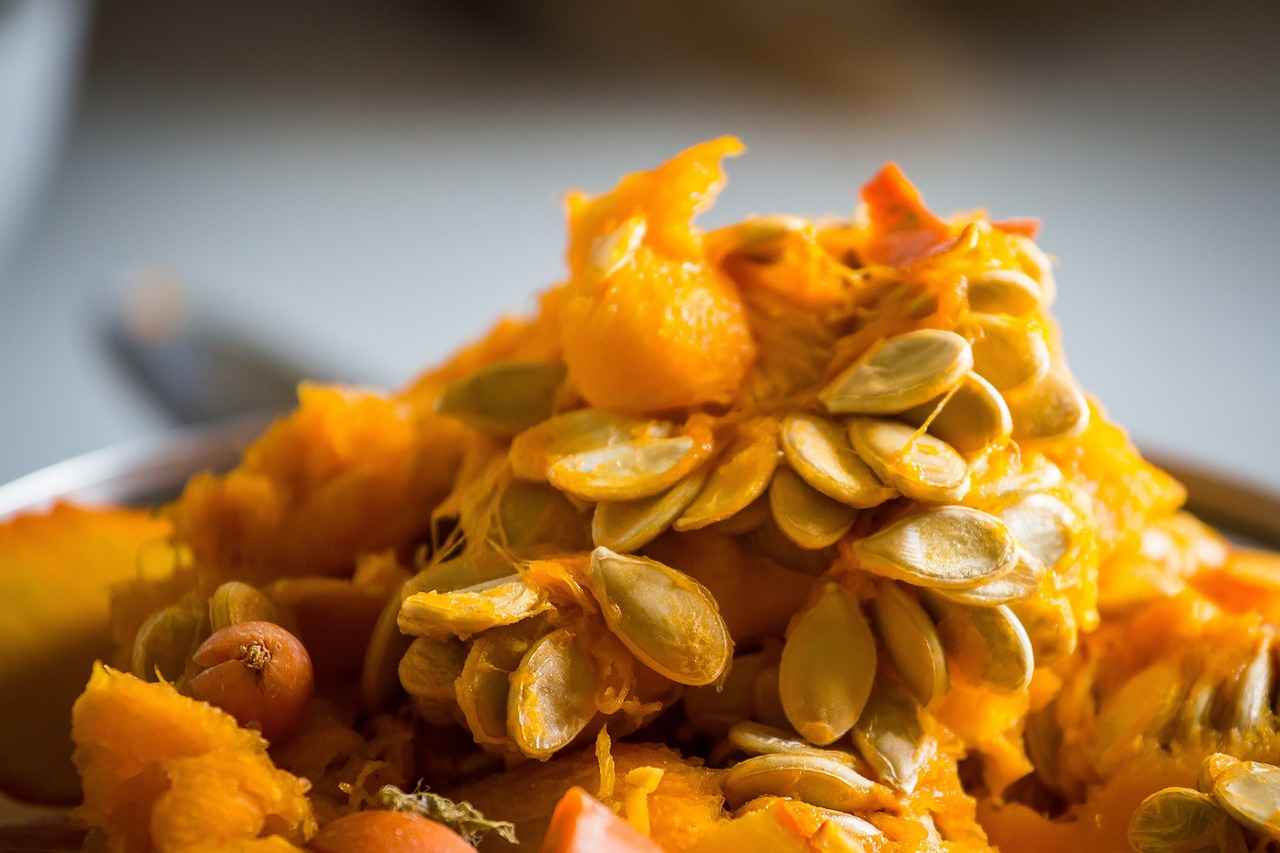
Online Retailers for Chia Seeds
In today’s fast-paced world, shopping online has become a preferred method for many consumers. This is particularly true for health-conscious individuals seeking nutritious options like chia seeds. The convenience of online shopping allows you to explore a broader range of chia seed products, compare prices, and read customer reviews—all from the comfort of your home. Here, we delve into some of the most popular online platforms where you can purchase chia seeds, providing insights to help you make informed choices.
Online retailers offer several advantages over traditional brick-and-mortar stores. First and foremost, they provide an extensive selection of products, including different brands, sizes, and organic options. Additionally, many online platforms often feature competitive pricing and discounts, making it easier to find deals on your favorite chia seeds.
- Amazon: One of the largest online marketplaces, Amazon boasts a vast selection of chia seeds from various brands. You can easily compare products, read customer reviews, and check for Prime shipping options for faster delivery.
- Thrive Market: This membership-based grocery delivery service specializes in organic and natural products. Thrive Market often offers chia seeds at discounted prices, making it an excellent choice for health enthusiasts.
- iHerb: Known for its extensive range of health products, iHerb provides a variety of chia seed options, including bulk purchases. Their user-friendly website allows you to filter products based on customer ratings and price.
- Walmart: With a growing online presence, Walmart offers a selection of chia seeds that can be ordered online and shipped directly to your home or picked up at a nearby store. Their competitive pricing makes it a popular choice.
- Health Food Stores: Many health food stores have robust online shopping options. Websites like Vitacost or Natural Grocers offer organic chia seeds and often have promotions that make purchasing even more affordable.
When purchasing chia seeds online, it’s essential to consider a few key factors to ensure you receive quality products:
- Brand Reputation: Research the brands available. Opt for well-known brands with positive reviews to ensure quality and safety.
- Organic Certification: Choose organic chia seeds to avoid pesticides and ensure higher nutrient content. Look for certifications displayed on the product page.
- Customer Reviews: Reading reviews from other customers can provide insights into the quality and freshness of the chia seeds, helping you make a more informed decision.
- Shipping Options: Consider the shipping costs and options available. Some retailers offer free shipping for orders over a certain amount, which can save you money.
To maintain the nutritional value of chia seeds, it’s crucial to ensure their freshness. Here are some tips:
- Check Expiration Dates: Always look for the expiration date on the product listing to ensure you’re purchasing fresh seeds.
- Packaging Type: Opt for chia seeds that come in resealable bags or airtight containers to preserve freshness.
By considering these factors and utilizing the resources available from reputable online retailers, you can easily incorporate chia seeds into your diet, taking advantage of their numerous health benefits. Whether you’re looking for a quick snack, a nutritious addition to your meals, or a health boost, online shopping offers the convenience you need to make healthy choices.
Amazon
When it comes to purchasing chia seeds, online shopping has become increasingly popular due to its convenience and variety. One of the leading platforms for buying chia seeds is . This extensive marketplace offers a wide range of products, making it easier for consumers to find exactly what they need.
Amazon provides a vast selection of chia seeds from various brands, which can be a significant advantage for shoppers. Here are some reasons why Amazon stands out:
- Variety: You can find chia seeds in different forms, including whole, ground, and organic options, catering to various dietary preferences.
- Customer Reviews: Many products come with customer reviews that can guide your choice. Reading about others’ experiences can help you select high-quality seeds that meet your expectations.
- Competitive Pricing: Amazon often features competitive prices, and you can compare different brands easily to find the best deal.
- Fast Shipping: If you are an Amazon Prime member, you can enjoy fast shipping options, ensuring you receive your chia seeds quickly.
To make the most of your shopping experience on Amazon, consider the following tips:
- Use Filters: Utilize the filtering options to narrow down your search by brand, price range, and customer ratings. This will help you find the best chia seeds that fit your needs.
- Check for Prime Options: Look for products that are eligible for Amazon Prime. This not only ensures faster delivery but may also offer free shipping.
- Read Product Descriptions: Take the time to read the product descriptions thoroughly. This will give you detailed information about the seeds, including their source, nutritional content, and any certifications.
- Watch for Deals: Keep an eye on special promotions or discounts. Amazon frequently runs sales, especially during events like Prime Day or Black Friday.
When shopping for chia seeds on Amazon, it’s essential to consider various factors to ensure you are making a wise purchase:
- Organic Certification: Opt for organic chia seeds to avoid pesticides and ensure higher nutrient content. Look for certifications on the packaging or in the product description.
- Packaging: Freshness is vital for maintaining the nutritional value of chia seeds. Choose products that come in resealable bags or airtight containers.
- Brand Reputation: Consider purchasing from well-known brands that have a history of quality. Researching the brand can help you feel more confident in your choice.
While Amazon is a reliable platform, there are some risks associated with purchasing chia seeds online:
- Quality Control: Not all sellers on Amazon maintain the same quality standards. It’s crucial to choose products with high ratings and positive reviews.
- Shipping Damage: Sometimes, products may get damaged during shipping. Ensure you check the packaging upon arrival and report any issues promptly.
In summary, Amazon is an excellent option for purchasing chia seeds due to its extensive selection, customer reviews, and fast shipping options. By following the tips outlined above, you can navigate the platform effectively and find high-quality chia seeds that suit your dietary needs.
Health Food Websites
When it comes to purchasing chia seeds, the options available online are extensive, particularly through health food websites. These platforms not only offer convenience but also a wide selection of products at competitive prices. This article dives deeper into the advantages of shopping for chia seeds on health-focused online retailers, highlighting specific platforms and their unique offerings.
Health food websites are designed for consumers who prioritize nutritional quality and organic options. Here are some compelling reasons to consider these platforms:
- Wide Variety: Health food websites often carry numerous brands and types of chia seeds, including organic, non-GMO, and bulk options.
- Competitive Pricing: Many of these websites provide discounts and bulk purchasing options, making it easier to stock up on your favorite superfood.
- Detailed Information: These platforms typically offer detailed product descriptions, including nutritional information and sourcing details, helping you make informed choices.
Here are some of the most reputable health food websites where you can find high-quality chia seeds:
Thrive Market is a membership-based online store that focuses on organic and healthy products. They offer a variety of chia seeds, often at prices lower than traditional retail. Members can access bulk purchasing options, making it a cost-effective choice for regular consumers.
iHerb is another popular online retailer that specializes in health foods and supplements. They provide a range of chia seed brands, including both whole and ground options. With frequent sales and a loyalty program, iHerb is a favorite among health enthusiasts.
Vitacost offers a wide selection of health products, including chia seeds. They often have promotional discounts and a rewards program for returning customers, making it an attractive option for budget-conscious shoppers.
While not exclusively a health food website, Amazon has a vast selection of chia seeds from various brands. The customer reviews and ratings can help you choose high-quality products, and Prime members may benefit from fast shipping options.
Selecting the right chia seeds online involves several considerations:
- Check for Certifications: Look for organic certifications on the product page to ensure you are getting high-quality seeds free from pesticides.
- Read Reviews: Customer reviews can provide valuable insights into the quality and taste of the chia seeds.
- Compare Prices: Take the time to compare prices across different websites to find the best deals, especially when buying in bulk.
When shopping for chia seeds online, consider the following tips to enhance your experience:
- Sign Up for Newsletters: Many health food websites offer discounts or promotions to subscribers, so signing up can save you money.
- Check Shipping Policies: Be aware of shipping costs and delivery times, as these can impact the overall price of your purchase.
- Look for Subscription Options: Some websites offer subscription services for regular deliveries at discounted rates, ensuring you never run out of chia seeds.
In conclusion, health food websites provide an excellent avenue for purchasing chia seeds. With their variety, competitive pricing, and detailed product information, these platforms cater to health-conscious consumers seeking quality superfoods. By considering the tips and recommendations outlined above, you can confidently navigate the world of online chia seed shopping.
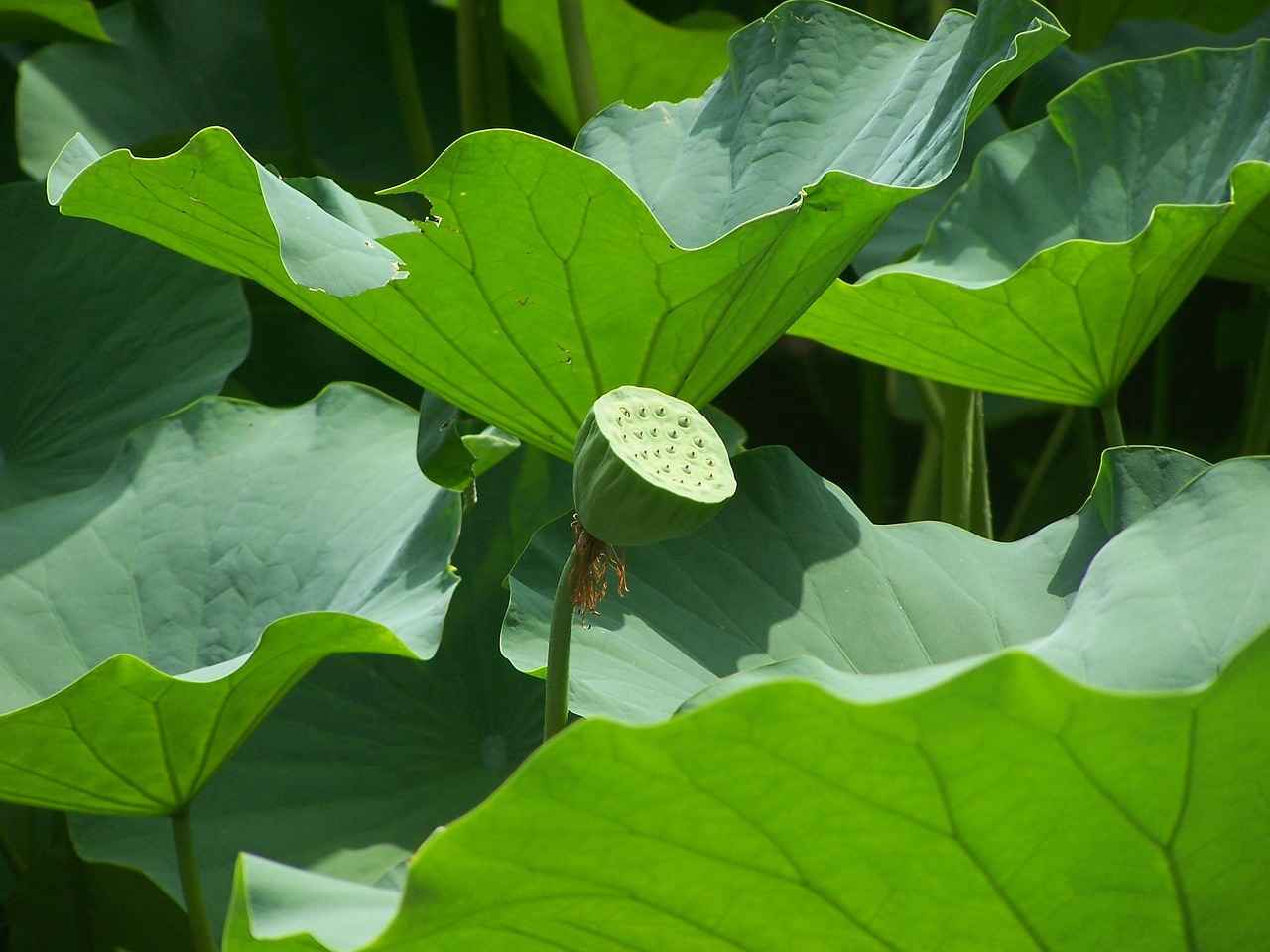
What to Look for When Buying Chia Seeds?
Choosing quality chia seeds is crucial for maximizing health benefits. With the growing popularity of this superfood, it’s essential to know what to look for when purchasing chia seeds. This guide outlines key factors to consider, ensuring you make an informed decision.
- Organic Certification: When selecting chia seeds, prioritize those that are organically certified. Organic seeds are grown without harmful pesticides and chemicals, which can preserve their nutritional content. Look for labels that clearly state “certified organic” to ensure that you are getting the best quality.
- Packaging and Freshness: The packaging of chia seeds plays a vital role in maintaining their freshness. Always check for packaging dates and choose seeds that come in resealable bags or airtight containers. This helps to prevent moisture and air from degrading the seeds over time.
- Seed Color and Size: Quality chia seeds typically have a glossy appearance and are uniform in size. Avoid seeds that appear dull or have discoloration, as this may indicate poor quality or age. The most common colors are black and white, and both types offer similar nutritional benefits.
- Source and Brand Reputation: Research the brand you are considering. Established brands with a good reputation often provide higher quality products. Look for brands that are transparent about their sourcing practices and provide information about where their chia seeds are grown.
- Customer Reviews: Before making a purchase, check customer reviews and ratings. Feedback from other consumers can provide valuable insights into the quality and freshness of the chia seeds. Look for reviews that mention taste, texture, and overall satisfaction.
- Price Comparison: While price is not always an indicator of quality, it is essential to compare prices across different retailers. Sometimes, bulk purchases can offer significant savings. However, be cautious of prices that seem too good to be true, as they may indicate lower quality seeds.
By keeping these factors in mind, you can make a well-informed decision when purchasing chia seeds. High-quality chia seeds can enhance your diet, providing essential nutrients and health benefits.
Incorporating chia seeds into your meals is easy and can significantly improve your overall nutrition. Whether you choose to add them to smoothies, salads, or baked goods, the right chia seeds can make a positive impact on your health.
Organic Certification
When it comes to purchasing chia seeds, is a crucial factor that should not be overlooked. Opting for organic chia seeds ensures that you are getting a product free from harmful pesticides and chemicals, which can compromise both your health and the environment. In this section, we will explore the importance of choosing organic chia seeds, how to identify them, and the benefits they offer.
Chia seeds, known for their nutritional benefits, are often marketed as a superfood. However, not all chia seeds are created equal. By selecting organic options, you can enjoy several advantages:
- Avoidance of Pesticides: Organic farming practices prohibit the use of synthetic pesticides and herbicides, which means your chia seeds are grown without harmful chemicals.
- Higher Nutrient Content: Studies suggest that organic chia seeds may contain higher levels of nutrients, including antioxidants and omega-3 fatty acids, compared to their non-organic counterparts.
- Environmental Benefits: Supporting organic farming helps promote sustainable agricultural practices that protect the soil, water, and biodiversity.
When shopping for chia seeds, it is essential to look for specific indicators that confirm their organic status. Here are some tips:
- Certification Labels: Check for labels from recognized organic certification bodies, such as the USDA Organic seal or equivalent certifications in your country. These labels indicate that the seeds meet strict organic standards.
- Ingredient List: Review the ingredient list on the packaging. Organic chia seeds should ideally contain only chia seeds, without any additives or preservatives.
- Brand Reputation: Research brands that are known for their commitment to organic farming practices. Trusted brands often provide transparency about their sourcing and production methods.
Incorporating organic chia seeds into your diet can offer numerous health benefits:
- Rich in Fiber: Organic chia seeds are an excellent source of dietary fiber, promoting digestive health and aiding in weight management.
- Omega-3 Fatty Acids: These seeds are one of the best plant-based sources of omega-3s, which are essential for heart health and brain function.
- Antioxidant Properties: Organic chia seeds contain antioxidants that help combat oxidative stress and inflammation in the body.
Finding quality organic chia seeds is easier than ever. Here are some reliable sources:
- Health Food Stores: Many local health food stores carry a variety of organic chia seed brands, often in bulk, allowing you to purchase as much or as little as you need.
- Online Retailers: Websites such as Amazon and specialty health food sites offer a wide selection of organic chia seeds with customer reviews to help guide your purchase.
- Farmers’ Markets: Some farmers’ markets feature local vendors selling organic chia seeds, providing an opportunity to support local agriculture while ensuring quality.
In conclusion, choosing organic chia seeds is a wise decision for both your health and the environment. By understanding the importance of organic certification and knowing where to find high-quality seeds, you can make informed choices that enhance your overall well-being.
Packaging and Freshness
When it comes to purchasing chia seeds, understanding the importance of packaging and freshness is crucial for maximizing their nutritional benefits. Chia seeds are known for their rich nutrient profile, including fiber, protein, and omega-3 fatty acids. However, these benefits can diminish if the seeds are not stored properly. In this section, we will explore how to ensure you are buying the freshest chia seeds available.
The packaging of chia seeds plays a significant role in preserving their quality. When selecting chia seeds, consider the following:
- Resealable Bags: Opt for chia seeds that come in resealable bags. This feature allows you to keep the seeds airtight after opening, which helps to maintain their freshness.
- Opaque Packaging: Choose seeds packaged in opaque containers. Light can degrade the quality of chia seeds, so packaging that blocks out light is preferable.
- Expiration Dates: Always check the expiration date or best by date on the packaging. Consuming seeds past their expiration date can lead to a decline in nutritional value and taste.
Freshness is vital for maintaining the nutritional value of chia seeds. Over time, exposure to air, moisture, and light can lead to oxidation, which diminishes the seeds’ health benefits. Here’s how to ensure you are getting the freshest seeds:
- Purchase from Reputable Sources: Buy chia seeds from well-known retailers or brands that prioritize quality and freshness. Look for organic certifications as they often indicate higher quality standards.
- Bulk Purchasing: If you consume chia seeds regularly, consider buying in bulk. However, ensure that the bulk packaging is still sealed and stored properly to maintain freshness.
- Local Options: Consider sourcing chia seeds from local health food stores or farmers’ markets. These options often provide fresher products and support local businesses.
Once you have purchased your chia seeds, proper storage is essential to maintain their freshness:
- Cool and Dry Environment: Store chia seeds in a cool, dry place, away from direct sunlight. A pantry or cupboard is usually ideal.
- Airtight Containers: Transfer chia seeds to an airtight container if they are not already packaged in one. This protects them from moisture and pests.
- Refrigeration: For extended freshness, consider refrigerating your chia seeds. This can help prolong their shelf life, especially in warmer climates.
Identifying fresh chia seeds is essential for ensuring you are getting a quality product. Here are some tips:
- Color and Texture: Fresh chia seeds should have a consistent color, typically black or white. They should feel dry and not sticky.
- Smell Test: Fresh chia seeds have a mild, nutty aroma. If they smell rancid or off, it’s best to discard them.
- Taste Test: If you’re unsure about freshness, you can taste a few seeds. They should have a pleasant, nutty flavor without any bitterness.
In summary, ensuring the freshness of chia seeds through proper packaging and storage practices is essential for maintaining their nutritional value. By being mindful of these factors, you can enjoy the full benefits of this superfood in your diet.

How to Store Chia Seeds Properly?
Proper storage of chia seeds is essential to maintain their freshness and nutritional value. These tiny seeds, packed with omega-3 fatty acids, fiber, and protein, can easily lose their beneficial properties if not stored correctly. Here are some valuable tips for optimal storage.
Chia seeds are highly nutritious, but exposure to air, light, and moisture can lead to rancidity and nutrient degradation. By understanding the significance of proper storage, you can ensure that your chia seeds remain fresh and retain their health benefits.
Using airtight containers is crucial for maintaining the quality of chia seeds. Glass jars, vacuum-sealed bags, or plastic containers with tight seals can protect the seeds from moisture and pests. Make sure the container is clean and dry before transferring your chia seeds.
Store chia seeds in a cool and dry area, away from direct sunlight. A pantry or cupboard is ideal. Avoid storing them near the stove or in areas with fluctuating temperatures, such as near windows or refrigerators.
If you buy chia seeds in bulk or plan to keep them for an extended period, consider refrigerating them. The cool temperature can help prolong their freshness. Just remember to keep them in an airtight container to prevent moisture absorption.
Always pay attention to the expiration dates on the packaging. Chia seeds can last up to two years if stored properly, but it’s best to consume them within six months to a year for optimal freshness.
While buying in bulk can save money, it may lead to spoilage if you cannot consume them quickly. Purchase smaller quantities that you can use within a reasonable time frame to ensure you always have fresh seeds on hand.
- Exposing Seeds to Air: Leaving chia seeds in an open bag can lead to oxidation and spoilage.
- Storing in Humid Areas: Moist environments can cause chia seeds to clump together or develop mold.
- Ignoring Packaging: Always check the packaging for specific storage recommendations from the manufacturer.
It’s important to be able to identify whether your chia seeds are still good to use. Here are some signs:
- Off Smell: Fresh chia seeds have a mild, nutty aroma. If they smell rancid or off, it’s best to discard them.
- Change in Appearance: Look for any discoloration or clumping, which can indicate moisture exposure.
- Taste Test: If you’re unsure, a small taste can help determine freshness. Fresh chia seeds should have a neutral flavor.
By following these storage tips, you can ensure that your chia seeds remain fresh and nutritious for as long as possible. Proper storage not only enhances their shelf life but also maximizes their health benefits, making them a valuable addition to your diet.
Cool and Dry Place
When it comes to storing chia seeds, the way you keep them can significantly impact their freshness and nutritional value. Proper storage not only ensures that they retain their quality over time but also prevents spoilage. Here are some essential tips for storing your chia seeds effectively.
Chia seeds are known for their nutritional benefits, including high levels of fiber, protein, and omega-3 fatty acids. However, these benefits can diminish if the seeds are not stored correctly. Exposure to air, moisture, and light can lead to rancidity and loss of nutrients. Therefore, understanding the best practices for storage is crucial.
To maintain the quality of chia seeds, it is vital to store them in a . Here are some effective storage locations:
- Pantry: A dark pantry away from heat sources is an ideal spot.
- Cabinet: Use a cabinet that is not exposed to sunlight or moisture.
- Refrigerator: For extended freshness, consider storing them in the refrigerator, especially in warmer climates.
Using the right container is just as important as the location. Opt for airtight containers to protect chia seeds from moisture and pests. Here are some recommended options:
| Container Type | Benefits |
|---|---|
| Glass Jars | Durable and non-reactive; allows for visibility of contents. |
| Plastic Containers | Lightweight and often equipped with airtight seals. |
| Vacuum-Sealed Bags | Excellent for long-term storage; minimizes air exposure. |
Before using chia seeds, it’s essential to check their freshness. Here are some tips:
- Smell: Fresh chia seeds have a mild, nutty aroma. A rancid smell indicates spoilage.
- Appearance: Look for seeds that are shiny and intact. Dull or broken seeds may be old.
- Expiration Date: Always check the packaging for a ‘best by’ date to ensure you’re consuming fresh seeds.
Yes, you can freeze chia seeds for long-term storage. Freezing can extend their shelf life significantly. Just ensure they are in an airtight container to prevent moisture from entering. When you’re ready to use them, simply take out the desired amount and let them come to room temperature.
By following these storage tips, you can ensure that your chia seeds remain fresh, nutritious, and ready to enhance your meals. Remember, proper storage is key to maximizing the health benefits of this superfood. With the right approach, you can enjoy the many advantages of chia seeds for a long time.
Airtight Containers
When it comes to preserving the quality of chia seeds, using is essential. These containers provide a barrier against moisture and pests, which can compromise the freshness and nutritional value of the seeds. Chia seeds, known for their impressive health benefits, can easily absorb moisture from the air, leading to clumping and spoilage. By storing them in airtight containers, you can ensure they remain viable for an extended period.
Airtight containers are designed to keep air and moisture out, which is crucial for maintaining the integrity of chia seeds. Here are some key benefits:
- Prevention of Moisture Damage: Exposure to moisture can lead to mold growth and spoilage. Airtight containers help keep chia seeds dry.
- Protection Against Pests: Insects and other pests can easily infiltrate poorly sealed containers. Airtight storage ensures that your chia seeds are safe from unwanted visitors.
- Extended Shelf Life: By minimizing exposure to air and humidity, airtight containers can significantly prolong the shelf life of your chia seeds.
There are various types of airtight containers available, each with its own advantages:
- Glass Jars: These are excellent for visibility and do not retain odors. They are also eco-friendly and can be reused.
- Plastic Containers: Lightweight and often more affordable, plastic containers can be effective if they are specifically designed to be airtight.
- Vacuum-Sealed Bags: For those who buy in bulk, vacuum-sealing chia seeds can be an effective way to eliminate air and moisture.
To maximize the benefits of airtight storage, follow these steps:
- Choose the Right Size: Select a container that fits the amount of chia seeds you have. A container that is too large may allow excess air inside.
- Keep Away from Light: Store the container in a cool, dark place, as light can degrade the quality of chia seeds over time.
- Seal Tightly: Ensure the lid is securely fastened to prevent any air from entering.
While using airtight containers is a great step, there are some common mistakes to avoid:
- Not Cleaning the Container: Always clean your container before use to avoid contamination from previous contents.
- Using Non-Airtight Containers: Avoid containers that are not specifically designed to be airtight, as they may not provide adequate protection.
- Storing in Humid Areas: Even airtight containers can be compromised in humid environments. Always store in a dry area.
In conclusion, using airtight containers is a simple yet effective way to protect your chia seeds from moisture and pests. By selecting the right type of container and following proper storage practices, you can ensure that your chia seeds remain fresh and nutritious for longer periods. This not only enhances their shelf life but also maximizes the health benefits they offer, making them a valuable addition to your diet.
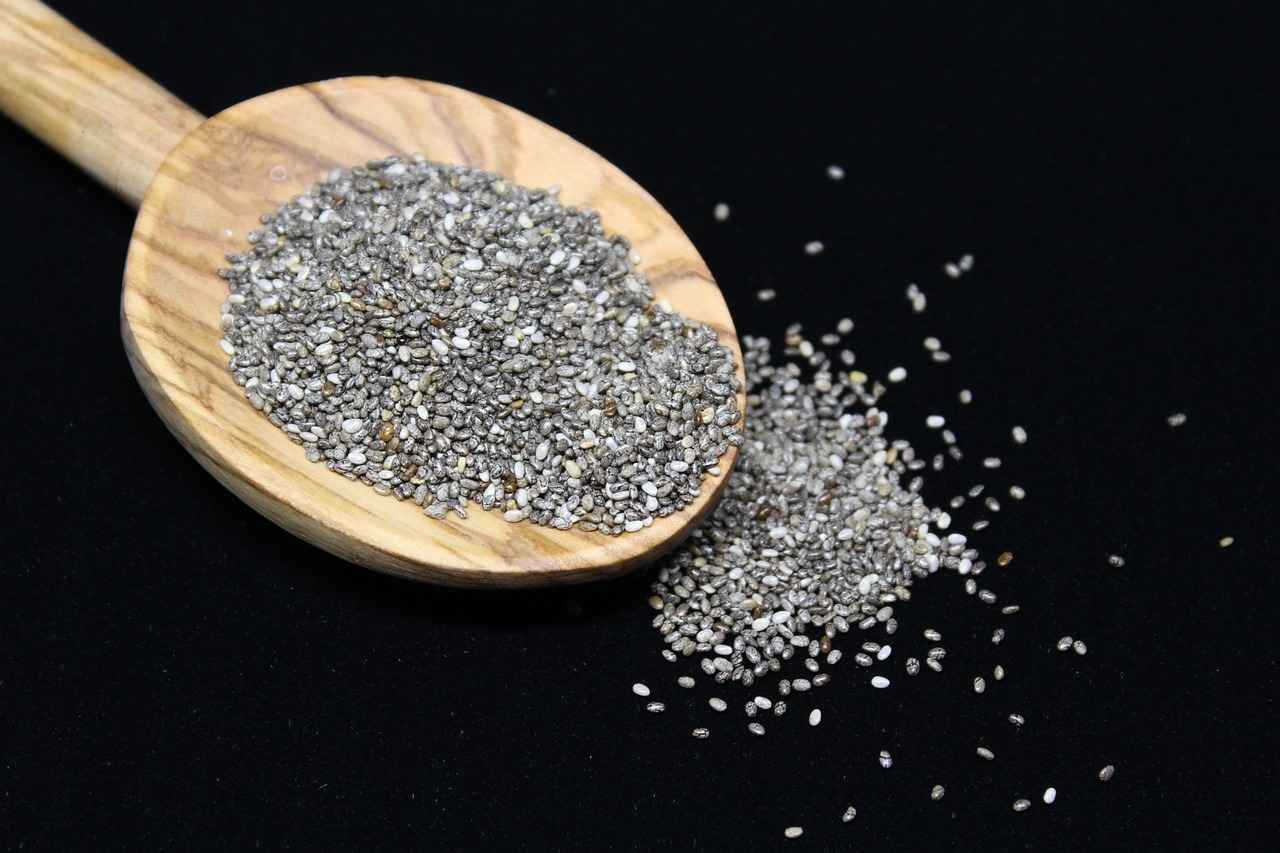
How to Incorporate Chia Seeds into Your Diet?
Chia seeds are a versatile and nutritious addition to any diet. Their ability to absorb liquid and form a gel-like consistency makes them an excellent ingredient for a variety of dishes. Here are some creative ways to incorporate chia seeds into your meals, enhancing both flavor and health benefits.
One of the simplest ways to enjoy chia seeds is by making chia seed pudding. To prepare this nutritious breakfast, mix 1/4 cup of chia seeds with 1 cup of milk or a milk alternative. Add a sweetener of your choice, such as honey or maple syrup, and let the mixture sit in the refrigerator overnight. In the morning, you can top it with fresh fruits, nuts, or granola for added texture and flavor.
Chia seeds can easily be added to your smoothies for an extra nutrient boost. Simply blend 1-2 tablespoons of chia seeds into your favorite smoothie recipe. They not only enhance the nutritional profile but also create a thicker, creamier texture. Pair them with ingredients like spinach, bananas, and almond milk for a deliciously healthy drink.
Add chia seeds to your baking recipes to enhance their nutritional value. You can include them in muffins, bread, or pancakes. For every cup of flour in your recipe, consider adding 2 tablespoons of chia seeds. They work particularly well in recipes that require moisture, as they help retain moisture and improve the overall texture.
Another great way to use chia seeds is by adding them to salads. Sprinkle a tablespoon of chia seeds over your salad for a delightful crunch and a boost of omega-3 fatty acids. You can also create a chia seed dressing by combining olive oil, vinegar, and chia seeds. Let it sit for a few minutes to allow the seeds to expand, then drizzle it over your favorite greens.
For those who enjoy spreads, try making a chia seed jam. Combine 2 cups of fresh or frozen fruit with 2 tablespoons of chia seeds and a sweetener of your choice. Cook the mixture over low heat until it thickens, then let it cool. This jam is a healthier alternative to traditional fruit spreads, packed with fiber and nutrients.
For a refreshing beverage, consider making chia infused water. Add 1-2 tablespoons of chia seeds to a glass of water and let it sit for about 10 minutes. The seeds will swell and create a unique texture. You can enhance the flavor by adding slices of lemon, lime, or cucumber.
Chia seeds can also be used to create healthy snacks. Mix them with nuts, dried fruits, and oats to make chia energy bars. Combine 1 cup of oats, 1/2 cup of nut butter, and 1/4 cup of honey, then stir in 1/4 cup of chia seeds and any other desired ingredients. Press the mixture into a pan, refrigerate, and cut into bars for a convenient on-the-go snack.
Incorporating chia seeds into your diet is not only easy but also adds a nutritional punch to your meals. With these creative ideas, you can enjoy the numerous health benefits of chia seeds while exploring new flavors and textures in your cooking.
Chia Seed Pudding
has gained immense popularity as a nutritious and versatile breakfast option. This delightful dish is not only easy to prepare but also packed with health benefits, making it a favorite among health enthusiasts and busy individuals alike.
To create , start by mixing chia seeds with your choice of milk or a milk alternative such as almond, coconut, or oat milk. The basic ratio is typically three tablespoons of chia seeds to one cup of liquid. Stir the mixture well to prevent clumping, and let it sit for a minimum of 30 minutes, or ideally overnight, in the refrigerator. During this time, the chia seeds will absorb the liquid and expand, creating a gel-like consistency that is both satisfying and nutritious.
Chia seeds are a nutrient powerhouse, rich in omega-3 fatty acids, fiber, and protein. Incorporating them into your diet through chia seed pudding can provide numerous health benefits:
- High in Fiber: Chia seeds contain soluble fiber, which aids in digestion and promotes a feeling of fullness.
- Rich in Antioxidants: These tiny seeds are loaded with antioxidants that help combat oxidative stress in the body.
- Supports Heart Health: The omega-3 fatty acids in chia seeds can contribute to improved heart health by reducing inflammation and lowering cholesterol levels.
One of the best aspects of chia seed pudding is its versatility. You can easily customize it to suit your taste preferences. Here are some ideas:
- Add Sweeteners: Consider adding honey, maple syrup, or agave nectar for a touch of sweetness.
- Incorporate Fruits: Top your pudding with fresh fruits like berries, bananas, or mangoes for added flavor and nutrition.
- Experiment with Flavors: Enhance your pudding with vanilla extract, cocoa powder, or spices like cinnamon for a unique twist.
Chia seed pudding can be enjoyed in various ways:
- As a Breakfast Option: Serve it in a bowl with your favorite toppings for a satisfying breakfast.
- As a Snack: Enjoy it as a healthy snack during the day, providing sustained energy.
- In Parfaits: Layer chia pudding with yogurt and fruits for a delicious parfait.
Yes! One of the great advantages of chia seed pudding is that it can be prepared in advance. Make a batch at the beginning of the week and store it in individual jars in the refrigerator. This way, you’ll have a convenient and healthy breakfast or snack ready to go at any time.
In summary, chia seed pudding is not only a nutritious breakfast option but also a versatile dish that can be tailored to your taste. With its numerous health benefits and ease of preparation, it’s no wonder that this superfood is becoming a staple in many households. So why not give it a try? Your taste buds and your body will thank you!
Smoothies and Juices
Incorporating chia seeds into your diet is a simple yet effective way to enhance your overall health. One of the most popular and delicious methods to enjoy these nutrient-packed seeds is by adding them to smoothies and juices. Not only do they blend seamlessly into your favorite beverages, but they also provide a significant nutrient boost that can elevate your drink’s health benefits.
Chia seeds are known for their impressive nutritional profile, which includes high levels of fiber, protein, and omega-3 fatty acids. When added to smoothies or juices, they can enhance the texture, making your drinks more satisfying and filling. Additionally, the seeds absorb liquid, creating a gel-like consistency that can help thicken your smoothies without the need for additional thickeners.
- Start Small: If you’re new to chia seeds, begin with a tablespoon or two. This allows your body to adjust to their high fiber content.
- Soak Before Blending: Soaking chia seeds in water or your chosen liquid for about 10-15 minutes before adding them to your smoothie can enhance their digestibility and texture.
- Mix with Fruits: Combine chia seeds with fruits like bananas, berries, or mangoes for a delicious flavor combination. The natural sweetness of the fruits complements the seeds perfectly.
Chia seeds can also be a fantastic addition to your juices. Here are a few combinations to consider:
- Citrus Blast: Mix orange juice, lemon juice, and a tablespoon of chia seeds for a refreshing drink.
- Green Power: Blend spinach, cucumber, apple, and chia seeds for a nutrient-dense green juice.
- Berry Fusion: Combine mixed berry juice with chia seeds for a sweet and healthy treat.
Including chia seeds in your smoothies and juices offers numerous health benefits:
- Improved Digestion: The high fiber content in chia seeds aids digestion and promotes gut health.
- Enhanced Hydration: Chia seeds can help maintain hydration levels due to their ability to absorb water.
- Weight Management: The combination of fiber and protein in chia seeds can help you feel full longer, aiding in weight management.
To maximize the benefits of chia seeds in your beverages, keep these tips in mind:
- Experiment with Ratios: Adjust the amount of chia seeds based on your texture preference. More seeds will create a thicker consistency.
- Blend Well: Ensure that your blender is powerful enough to fully incorporate the seeds into your drink.
- Store Properly: If you prepare smoothies or juices in advance, store them in airtight containers in the refrigerator for optimal freshness.
In summary, adding chia seeds to smoothies and juices is an excellent way to enhance their nutritional value and enjoy a delicious beverage. With their numerous health benefits and versatility, chia seeds are a fantastic addition to any diet.
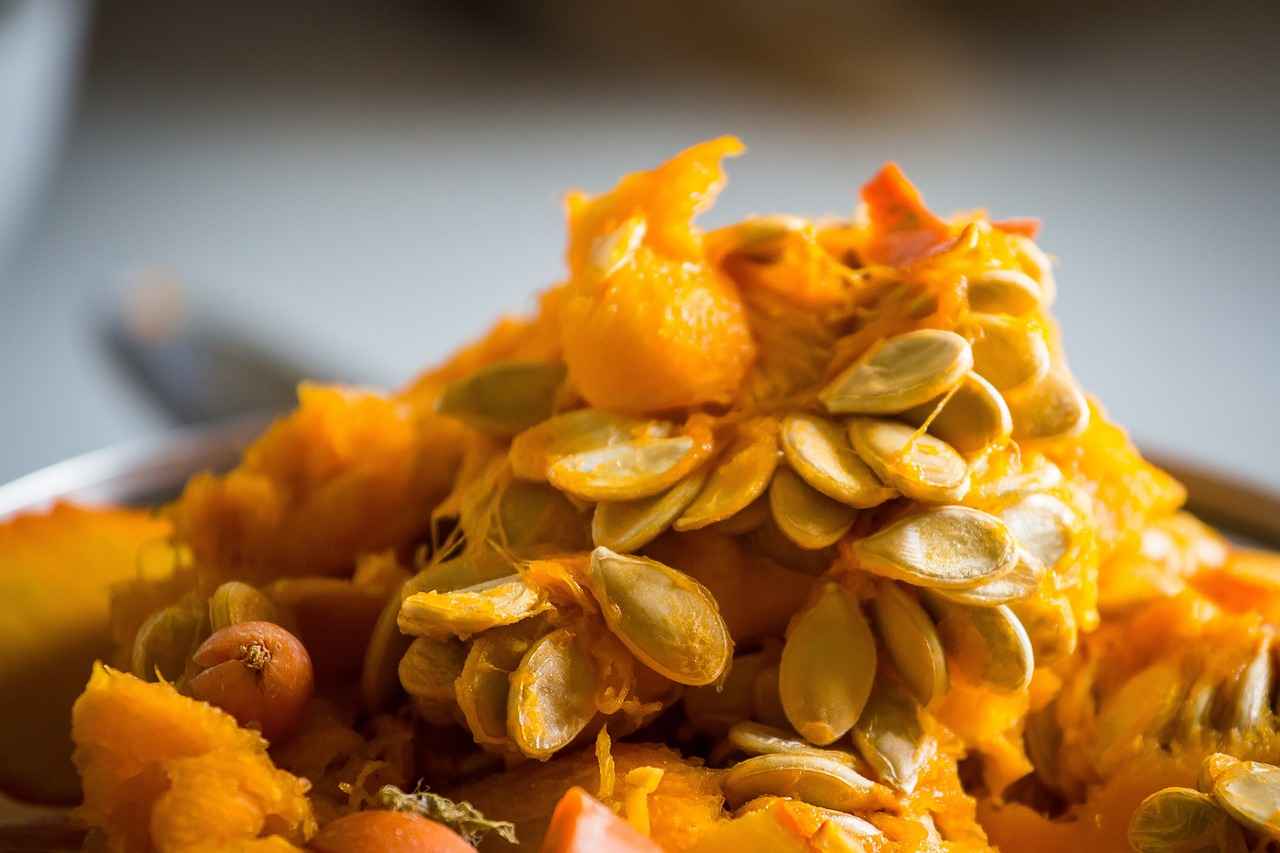
What Are the Health Benefits of Chia Seeds?
Chia seeds, derived from the Salvia hispanica plant, have gained popularity as a superfood due to their impressive nutritional profile. They are tiny, yet packed with a multitude of health benefits, making them an essential addition to any diet. In this section, we will explore the various health benefits of chia seeds, providing you with a comprehensive understanding of why they deserve a place in your pantry.
Chia seeds offer an array of health advantages that can enhance your overall well-being. Below are some of the key benefits:
- Rich in Nutrients: Chia seeds are an excellent source of fiber, protein, and omega-3 fatty acids. A 28-gram serving contains approximately 11 grams of fiber, 4 grams of protein, and 5 grams of omega-3s, making them a nutrient-dense choice for health enthusiasts.
- Supports Digestive Health: The high fiber content in chia seeds promotes healthy digestion and can help prevent constipation. Fiber is essential for maintaining regular bowel movements and supporting gut health.
- Aids in Weight Management: Chia seeds can assist in weight management due to their ability to absorb water and expand in your stomach. This property promotes a feeling of fullness, which can help reduce overall calorie intake.
- Stabilizes Blood Sugar Levels: Including chia seeds in your diet can aid in stabilizing blood sugar levels. Their high fiber content slows down the digestion process, preventing spikes in blood sugar after meals.
- Boosts Heart Health: The omega-3 fatty acids found in chia seeds are known to support heart health by reducing inflammation and lowering cholesterol levels. Regular consumption can contribute to a healthier cardiovascular system.
- Enhances Bone Health: Chia seeds are rich in minerals such as calcium, magnesium, and phosphorus, which are vital for maintaining strong bones. Incorporating them into your diet can help support bone density and overall skeletal health.
- Provides Antioxidants: Chia seeds are loaded with antioxidants, which help combat oxidative stress and reduce inflammation in the body. This can lower the risk of chronic diseases and promote longevity.
In addition to these benefits, chia seeds are incredibly versatile and can be easily incorporated into various dishes. Whether you add them to smoothies, yogurt, or baked goods, they can enhance the nutritional value of your meals without altering the flavor significantly.
While chia seeds are generally safe for most individuals, it is essential to consume them in moderation and drink plenty of water to prevent any digestive discomfort. As with any dietary addition, it’s advisable to consult with a healthcare professional, especially if you have underlying health conditions or concerns.
In summary, the health benefits of chia seeds are extensive and well-supported by research. Their nutrient density, combined with their versatility in cooking, makes them a valuable addition to a balanced diet. By incorporating chia seeds into your meals, you can take a significant step toward improving your overall health.
Rich in Nutrients
Chia seeds have gained immense popularity in recent years, and for good reason. These tiny seeds are often hailed as a superfood due to their impressive nutritional profile. They are not only rich in essential nutrients but also versatile in their culinary applications. In this section, we will delve deeper into the nutritional benefits of chia seeds, highlighting their fiber, protein, and essential fatty acids, and how these components contribute to overall health and well-being.
Chia seeds are packed with an array of nutrients that can significantly impact your health. Here are some of the key components:
- High Fiber Content: Chia seeds are an excellent source of dietary fiber. Just two tablespoons of chia seeds contain about 11 grams of fiber, which is approximately one-third of the recommended daily intake for adults. This high fiber content aids in digestion, promotes a healthy gut, and can help regulate blood sugar levels.
- Protein Powerhouse: These seeds are also a great source of plant-based protein. They contain all nine essential amino acids, making them a complete protein source. This is particularly beneficial for vegetarians and vegans looking to meet their protein needs.
- Essential Fatty Acids: Chia seeds are rich in omega-3 fatty acids, particularly alpha-linolenic acid (ALA). Omega-3s are known for their anti-inflammatory properties and are vital for heart health. Including chia seeds in your diet can help support cardiovascular function and reduce the risk of chronic diseases.
The combination of fiber, protein, and healthy fats in chia seeds contributes to various health benefits:
- Weight Management: The high fiber content in chia seeds helps promote feelings of fullness, which can aid in weight management. When consumed, chia seeds absorb water and expand in the stomach, helping to curb appetite.
- Improved Digestive Health: The soluble fiber in chia seeds acts as a prebiotic, supporting the growth of healthy gut bacteria. This can lead to improved digestion and a healthier microbiome.
- Heart Health: The omega-3 fatty acids in chia seeds are known to lower triglycerides, reduce inflammation, and improve overall heart health. Regular consumption may also help lower blood pressure and improve cholesterol levels.
Incorporating chia seeds into your diet is easy and versatile. Here are some practical tips:
- Add to Smoothies: Blend chia seeds into your morning smoothie for an added nutrient boost.
- Make Chia Pudding: Combine chia seeds with your choice of milk or yogurt, let them soak overnight, and enjoy a delicious pudding for breakfast or dessert.
- Sprinkle on Salads: Add a tablespoon of chia seeds to your salads for a crunchy texture and nutritional enhancement.
In summary, chia seeds are a nutrient-dense superfood that can provide numerous health benefits when included in your diet. Their high fiber, protein, and essential fatty acid content make them a valuable addition to any meal. By understanding their nutritional profile and incorporating them into your daily routine, you can enhance your overall health and well-being.
Weight Management
Weight management is a crucial aspect of maintaining overall health and well-being. As more individuals seek effective solutions for managing their weight, the role of dietary choices becomes increasingly significant. One such choice that has gained popularity is the inclusion of chia seeds in daily meals. These tiny seeds are not only versatile but also packed with essential nutrients that can support weight management efforts.
Chia seeds are renowned for their high fiber content, which plays a pivotal role in promoting feelings of fullness. When consumed, these seeds absorb water and expand in the stomach, creating a gel-like consistency. This process can significantly enhance satiety, leading to reduced hunger and cravings. As a result, individuals may find it easier to manage their calorie intake without feeling deprived.
In addition to fiber, chia seeds are a rich source of protein and omega-3 fatty acids. These nutrients can further aid in weight management by supporting muscle health and promoting healthy metabolism. The combination of protein and fiber helps stabilize blood sugar levels, which can prevent energy crashes and subsequent overeating.
Integrating chia seeds into your meals is both simple and delicious. Here are some practical ideas:
- Chia Seed Pudding: Combine chia seeds with your choice of milk and let them sit overnight. Add fruits or nuts for flavor.
- Smoothies: Blend chia seeds into your favorite smoothie for an added nutrient boost.
- Baking: Incorporate chia seeds into baked goods like muffins or bread for added texture and nutrition.
While chia seeds offer numerous benefits, it is essential to consume them in moderation. Overeating chia seeds without adequate hydration may lead to digestive discomfort. It is advisable to drink plenty of water when incorporating these seeds into your diet. Additionally, individuals with specific allergies should consult a healthcare professional before adding chia seeds to their meals.
Nutritionists and health experts often highlight the importance of a balanced diet complemented by nutrient-dense foods like chia seeds. According to research, the inclusion of high-fiber foods is associated with lower body weight and improved health outcomes. Chia seeds, with their unique ability to promote satiety, can be an effective tool in a weight management strategy.
When compared to other superfoods, chia seeds stand out due to their unique combination of nutrients. While many superfoods offer health benefits, chia seeds provide an exceptional amount of fiber and omega-3 fatty acids in a small serving. This makes them an excellent choice for those looking to enhance their diet without consuming excessive calories.
Incorporating chia seeds into your diet can be a beneficial strategy for weight management. Their high fiber content promotes satiety, helping to control appetite and reduce overall calorie intake. By understanding the nutritional benefits and practical ways to use chia seeds, individuals can make informed choices that support their health goals. As always, it is essential to maintain a balanced diet and consult with healthcare professionals when making significant dietary changes.

Are There Any Risks or Side Effects?
Chia seeds are often celebrated for their numerous health benefits, but it is essential to recognize that they are not without potential risks. Although most individuals can enjoy chia seeds without any adverse effects, some may experience side effects, particularly if consumed in large quantities or without adequate hydration. In this section, we will explore the potential risks associated with chia seed consumption, emphasizing the importance of moderation and awareness.
While chia seeds are a nutrient-dense superfood, it is crucial to understand that they may not be suitable for everyone. Here are some potential risks to consider:
- Digestive Issues: One of the most common side effects of consuming chia seeds is digestive discomfort. Chia seeds absorb a significant amount of water, expanding up to 12 times their original size. If you eat them without sufficient hydration, they may cause bloating, gas, or even constipation. It is advisable to drink plenty of water when incorporating chia seeds into your diet to help mitigate these issues.
- Allergic Reactions: Although rare, some individuals may have allergies to chia seeds. Symptoms can range from mild reactions, such as itching or hives, to more severe responses, including difficulty breathing. If you are trying chia seeds for the first time, it is wise to start with a small amount and monitor your body’s reaction.
- Interaction with Medications: Chia seeds can have a blood-thinning effect due to their high omega-3 fatty acid content. If you are taking anticoagulant medications or have a bleeding disorder, consult your healthcare provider before adding chia seeds to your diet.
- High Fiber Content: Chia seeds are rich in fiber, which is beneficial for digestive health. However, a sudden increase in fiber intake can lead to gastrointestinal distress, particularly for those unaccustomed to a high-fiber diet. Gradually introducing chia seeds can help your body adjust.
To enjoy the benefits of chia seeds while minimizing potential risks, consider the following tips:
- Start Slowly: If you are new to chia seeds, begin with a small serving, such as one teaspoon, and gradually increase the amount as your body adjusts.
- Soak Before Eating: Soaking chia seeds in water or another liquid before consumption can help reduce the risk of digestive issues. This allows the seeds to expand and absorb moisture, making them easier to digest.
- Stay Hydrated: Ensure you drink enough water throughout the day, especially when consuming chia seeds. This will help prevent any potential digestive discomfort.
- Consult a Healthcare Professional: If you have any pre-existing health conditions or concerns about incorporating chia seeds into your diet, it is always best to consult with a healthcare provider or a registered dietitian.
While chia seeds offer numerous health benefits, it is essential to approach their consumption with awareness of potential risks. By understanding the possible side effects and following safe consumption practices, you can enjoy chia seeds as part of a balanced diet. Always listen to your body and consult with professionals if you have any concerns.
Digestive Issues
Chia seeds have gained immense popularity due to their numerous health benefits and versatility in various dishes. However, it is crucial to be aware of potential digestive issues that may arise from their consumption. One of the most significant concerns is the risk of digestive discomfort, particularly when chia seeds are consumed in large quantities without proper hydration.
Chia seeds are rich in soluble fiber, which can absorb water and expand in the digestive tract. This property is beneficial for promoting a feeling of fullness and aiding digestion. However, if you consume a large amount of chia seeds without drinking enough water, they can absorb water in your stomach and intestines, leading to gastrointestinal discomfort, including bloating, gas, and constipation.
When chia seeds are soaked in water or another liquid, they form a gel-like consistency that can help regulate bowel movements and improve digestive health. However, without adequate hydration, the seeds can swell in the digestive tract, potentially causing blockages or discomfort. Therefore, it is essential to drink plenty of water when consuming chia seeds to facilitate their digestion and prevent any adverse effects.
While there is no one-size-fits-all answer, a good rule of thumb is to drink at least 8 ounces of water for every tablespoon of chia seeds consumed. This ensures that the seeds have enough liquid to expand properly and minimizes the risk of digestive issues. Additionally, maintaining overall hydration throughout the day is vital for optimal digestive health.
- Bloating: A feeling of fullness or tightness in the abdomen
- Gas: Increased flatulence or discomfort in the stomach
- Constipation: Difficulty in passing stools or infrequent bowel movements
- Abdominal Pain: Cramping or discomfort in the stomach area
Individuals with pre-existing digestive conditions, such as irritable bowel syndrome (IBS) or those prone to gastrointestinal blockages, should exercise caution when incorporating chia seeds into their diet. It is advisable to start with small amounts and gradually increase intake while monitoring for any adverse effects. Consulting with a healthcare professional can provide personalized guidance tailored to individual health needs.
- Soak Before Eating: Consider soaking chia seeds in water or milk for at least 30 minutes before consumption to allow them to expand and become easier to digest.
- Start Small: Begin with 1 teaspoon of chia seeds and gradually increase to 1-2 tablespoons as your body adjusts.
- Stay Hydrated: Always drink plenty of fluids throughout the day to support digestion and overall health.
- Combine with Other Foods: Incorporate chia seeds into smoothies, yogurt, or oatmeal to enhance hydration and improve digestibility.
In conclusion, while chia seeds are a nutritious addition to any diet, it is essential to consume them mindfully. By ensuring adequate hydration and being aware of potential digestive issues, you can enjoy the health benefits of chia seeds without discomfort.
Allergic Reactions
Chia seeds are celebrated for their numerous health benefits, but it is essential to acknowledge that not everyone can enjoy them without concern. to chia seeds, although uncommon, can occur in some individuals. Understanding the potential for allergies is crucial when incorporating these seeds into your diet, especially if you are trying them for the first time.
Individuals who are allergic to chia seeds may experience a range of symptoms. These can include:
- Skin Reactions: Itching, hives, or rashes may develop upon contact or ingestion.
- Gastrointestinal Issues: Symptoms such as nausea, vomiting, or diarrhea can occur.
- Respiratory Problems: Some may experience difficulty breathing, wheezing, or nasal congestion.
If you notice any of these symptoms after consuming chia seeds, it is essential to seek medical attention promptly.
Identifying a chia seed allergy typically involves monitoring your body’s reaction after consumption. If you are trying chia seeds for the first time, consider the following steps:
- Start Small: Introduce chia seeds into your diet gradually, beginning with a small amount.
- Observe Your Body: Pay close attention to any adverse reactions within a few hours of consumption.
- Consult a Healthcare Professional: If you suspect an allergy, consult an allergist for proper testing and guidance.
While anyone can develop an allergy, certain individuals may be at a higher risk:
- Individuals with Existing Allergies: Those with known allergies to other seeds, such as sesame or flaxseed, may be more prone to chia seed allergies.
- People with Food Allergies: A history of food allergies can increase the likelihood of developing new allergies.
If you suspect you are having an allergic reaction to chia seeds, it is vital to act quickly:
- Stop Consumption: Immediately cease eating chia seeds and any products containing them.
- Seek Medical Help: If symptoms are severe, especially respiratory issues, seek emergency medical assistance.
- Document Your Reaction: Keep a record of what you consumed and the symptoms experienced to aid healthcare providers in diagnosis.
While it may not be possible to prevent allergies entirely, you can take steps to minimize the risk:
- Educate Yourself: Understand the ingredients in foods you consume, especially if they contain chia seeds.
- Read Labels: Always check product labels for chia seeds, particularly in processed foods.
- Consult with a Dietitian: If you have existing allergies, a dietitian can help you navigate food choices safely.
In summary, while chia seeds are a nutritious addition to many diets, it is crucial to be aware of the potential for allergic reactions. By taking precautionary measures and monitoring your body’s responses, you can enjoy the benefits of chia seeds while minimizing risks.
Frequently Asked Questions
- What are chia seeds?
Chia seeds are tiny, nutrient-packed seeds derived from the Salvia hispanica plant. They are rich in fiber, protein, and omega-3 fatty acids, making them a popular superfood choice.
- Where can I buy chia seeds?
You can find chia seeds at local grocery stores, health food shops, and specialty markets. Additionally, online retailers like Amazon and health-focused websites offer a wide selection.
- How do I know if my chia seeds are fresh?
Check the packaging for a ‘best by’ date and choose resealable bags to maintain freshness. Storing them in a cool, dry place also helps keep them in top condition.
- Can I eat chia seeds every day?
Yes! Incorporating chia seeds into your daily diet can provide numerous health benefits. Just remember to drink plenty of water to aid digestion.
- Are there any side effects of consuming chia seeds?
While generally safe, some individuals may experience digestive issues if they consume large amounts without enough hydration. Monitor your body’s response when trying them for the first time.
